The Cryonics Survey of 2022, Part 1
Demographics, personal preferences, family matters, pets, ideological connections, and matters political and religious identity
Thank you to everyone for their patience, I know folks have been looking forward to the survey results.
This post will be the first in a short series. Today we’re looking at survey questions relating to:
Demographics and Preferences of Cryonicists
Cryonicists & The Family
Cryonics & Pets
Cryonicists & their political, social, religious, or ideological connections
A few quick notes before we begin:
244 people took the survey
Several graphs will show a 3 dot ellipses (…). This is a formatting glitch courtesy of Survey Monkey. The full text of that answer can always be found right below the graph in the same table the contains the answer totals.
55% of respondents were full dues paying members. 5% of respondents are paying members that still have some issues to finalize before becoming fully signed up. ~25% were committed and ready to sign up but procrastinating on getting it done. 10% were interested in Cryonics but haven’t fully decided on signing up or not yet. The remaining 5% of respondents were not signed up, but were what I’d call “Cryonics-adjacent”.
The data presented here is from all of the respondents. Future posts will focus on dues-paying members. This first post is looking at both Cryonicists and “Cryonics adjacent” individuals.
You’ll notice I skip over certain survey questions. That’s because I am grouping these posts into specific topics. I’ll come back to cover those skipped questions soon enough in subsequent posts.
A lot of the data presented here will be presented “as is” with a bit of my own observations. However - you’re free to interpret these questions as you see fit. I (and some other writers in this new substack) will be providing a more in-depth analysis in later posts.
I should point out that I am not a professional market researcher, nor a statistician, nor a social psychologist, etc. As such, you may rightly point out that I am misinterpreting a result or that I could’ve phrased a question better - and to you, I would say, you’re probably right, and I encourage you to leave any and all such remarks in the comment section.
I see this survey as the first of hopefully many that will not only ask better or different questions but will also track changes among this population over time.
Q1 - Gender
It will come as a surprise to virtually no one that almost 85% of survey respondents were male. I’ve personally asked every woman I’ve had on the podcast why this might be the case and what, if anything, could (or should) be done about this. I don’t think there is one clear definitive answer to this question just yet; it seems to be a combination of factors. Regardless, I would see getting more women to sign up for Cryonics in the future as a good sign, and a sign that Cryonics is becoming more mainstream.
Q2 - Age
The average age of respondents was 43. I might come back and look at this more in-depth later on.
Q3 - Sexual Orientation
According to Gallup, “86.7% of American say they are heterosexual…”. Cryonicists appear to deviate from this baseline somewhat, but not by an extreme amount.
Q4 - Relationship Style
Of note, the specific question here was “I consider myself ______.” Which may have been better phrased as “My preferred relationship style is ______” which might have differentiated between people who prefer one thing but find themselves in something else. I give my original wording here a B.
When I lived in the Bay Area, I noticed many of my friends in the rationalist or “rationalist-adjacent” communities were not monogamous. Surprisingly non-monogamy is more popular than I would’ve thought, at least according to Yougov.
Q5 - Educational Attainment (Highest degree earned)
Another “no surprise here” result, Cryonicists have more years of schooling than average. Wikipedia has some good data if you want to compare this with educational attainment in the US.
One big regret of mine here is not asking a question that attempted to figure out how many Cryonicists are autodidacts of some flavor or other. I suspect quite a few Cryonicists have managed to become experts in fields without attaining some kind of formal degree in those fields.
Q8 - Where I live is primarily
This question is important for two reasons. First, it’s harder to get standby out to people who live further away from a major airport. Having some idea of how many people live far from airports vs close is useful to know how big of a problem this is (admittedly, this survey question is only an imperfect proxy for that one).
Second, our culture and our politics are dividing ever more strongly into “urban vs rural” with the suburbs and exurbs landing somewhere in between those things. I might have more thoughts on how this could relate to Cryonics at a later date.
Q9 - Relationship Status
This question was inspired by the way people ask about employment. In that context, the question is whether you’re unemployed and looking for work or unemployed and no longer looking… I tried to find some good data on “single and dating” vs “single and not dating” to compare this to, but couldn’t find any I’m confident in. If you have any, feel free to add it to the comments.
Of note, 73% of single Cryonicists are not dating, and that strikes me as high. Maybe this is my own bias seeping through, but I’d hope there’s someone out there for us all, and if you happen to randomly “deanimate” in bed one night, hopefully you have someone near you or at least in the next room who cares enough to help get you into a Dewar before there’s no sense in bothering. Food for thought.
Q10 - Do you have any children?
From the data I could find, about 15.4% of women aged 40-44 were childless (according to the US Census Bureau). That's the age by which, if you were going to have children, you'd probably have had at least one.
I would note that I’m generally in the pro-natalist camp. Although I don’t yet have any kids of my own, I hope to have them at some point in the future. We all need to decide what’s best for us and our choices, but I’d love to see a world where more Cryonicists choose to have more kids. Bryan Caplan has a great book on this subject, summarized well here. Besides, if we do get to see the distant future, wouldn’t it be nice to have some group of genetic offspring to share that future with?
Q11 - Children signed up for Cryonics?
First, I admit I worded this question poorly. If someone didn’t have any kids, I was imagining they would answer “N/A” and only answer “No” if they explicitly had children and those children weren’t signed up… but, if a respondent was reading through this one quickly, they might’ve answered “no” because they didn’t have any kids.
And, to really make clear conclusions here, I’d need to control for only people signed up for Cryonics themselves... But still! In the previous question we see that ~25% of respondents have at least one child, and here that ~5% of respondents have at least one child signed up for Cryonics… That’s 80% of respondents with children who are (the majority) signed up for Cryonics, and the vast majority of the remainder at least strongly interested in signing up…
If you have kids, remember - they’re dirt cheap to add-on to any existing Cryonics policy. As soon as they’re not “very” young, life insurance for them is as cheap as it gets.
Q12 - Are any other family members signed up?
Another disappointing result, more on this later on.
Q13 - Were you instrumental in getting these other family members signed up?
On a positive note, it seems when a family member was signed up, it seems survey respondents had a hand in this. Future questions on this matter should seek to differentiate whether it was a back-and-forth among family members culminating in multiple family members deciding to sign up concurrently.
Q15 - Pets currently or recently owned
According to the “American Pet Products Association”, about 2/3 of “households” have a pet in them. If anything, I’d expect this organization would inflate those numbers, but I didn’t dig into the data to determine how confident I am in that figure. That said, it suggests Cryonicists are at least as likely to have a pet as the average person, if not more.
I’m of the school of thought that pets should be getting more attention that they have traditionally gotten from Cryonics organizations. Pets have, thus far, come across as an afterthought.
Previous guest of the podcast Kai Micah Mills is hard at work on Cryopets to try and plug this hole in the market for pet cryopreservation.
Q16 - I find the idea of Pet Cryonics to be:
I can understand why Cryonics orgs have historically swept pet-Cryonics under the rug to some extent. It can come across as extra-weird to be cryopreserving non-human animals.
On the other hand, most people thought it was either a good idea or were indifferent. Only a handful of people thought it was actually a bad idea.
Reviewing the written-in responses, a couple of people mentioned that a pet could not themselves consent to such a procedure.
Q17 - Relative to human cryopreservation, I think pets
Most people believe our dogs and cats probably get a better cryopreservation than the large hairless apes we usually put in the dewars. I’d love to hear some comments on this from folks who work at Alcor or CI and can speak to this. It certainly seems plausible given how much easier it is to bring a smaller mammalian head down to the appropriate temperature rather quickly and effectively.
Q18 - I spend at least one hour on average per week on
Well - the verdict is in. If potential Cryonicists look anything like the respondents on this survey, marketing dollars should be going towards Youtube!
Granted there are numerous factors that could complicate this picture. Maybe people get certain kinds of info from Youtube and it’s not the kind of info that would lead them to consider Cryonics. Maybe people spend a great deal of time on Youtube because the information-density of the information is low. Maybe all the best content is via podcasts, or Reddit, or Twitter? Feel free to draw your own conclusions.
Q19 - (Identity) I consider myself a
I am actually surprised that “life extension enthusiast” isn’t closer to 90%. Granted, that depends on how respondents interpreted “enthusiast”, eg. if you take it to mean “reading life extension publications regularly” or some such, then that can confuse the data here.
Perhaps we can glean more from the fact that about 50% of responders are either rationalist or rationalist-adjacent.
Q20 - I have some interest in
Science and technology scored some runaway victories here. Surprising precisely no one. I do appreciate, though, that about 2/3 of respondents were interested in politics or philosophy.
As in other questions, this question could benefit from gauging the strength of those interests (rather than treating interest as a binary) in future surveys.
Q21 - Political Orientation
The specific wording of this question was “The political view most closely associated with my own would probably be…”. As such, it forced respondents to put themselves somewhere in this mix of political orientations. ~17% of respondents didn’t feel any of these really matched up with their views.
But, that means ~83% of respondents did feel one of these was pretty close to their views, so I give myself a solid A- for coming up with a solid mix of political ideologies to query folks on here. Political viewpoints are all over the map, so this is actually not trivial to do.
On to some observations.
For people that believe Cryonics is overwhelmingly a libertarian pursuit - this data suggests otherwise. Looking at the data, ~1/3 of respondents are some flavor of libertarian (eg. Minarchist, geolibertarian, classical liberal, etc) and ~1/3 are some flavor of “left type” (eg. Progressive, social democrat, anarcho-communist, etc).
It is more accurate to describe the Cryonics community as not “right type” politically. (Note, if you consider libertarians to be either ‘left type’ or ‘right type’ you might see things differently. The data is there for you to draw your own conclusions, as always).
Q22 - Existential Concerns
The wording of the question was “The biggest existential threats faced by humanity are”.
Remember this data was collected almost entirely between Q4 2022 and Q1 2023. As a result, concerns over a pandemic are likely overrepresented relative to when you’re reading this, and concerns over AI might be underrepresented. The war in Ukraine was also looming large at this time.
That said, there’s no reason climate change should be particularly high in peoples’ minds at the moment, so concerns over climate change are likely hard-coded versus concerns over some of these other problems. Similarly, not being concerned with the arrival of unfriendly aliens seems like it’s likely to endure. That is, unless something very unexpected has happened between the time I’m writing this and when you’re reading it.
The write-in comments were all over the map. Everything from super-volcanos to fake news to overpopulation. A couple of people mentioned the rise of authoritarianism and concerns over grey-goo scenarios. Some commenters thought humanity was resilient enough to withstand almost any of these concerns.
Q23 - Cryonics & varieties of Neuro a-typicality
These questions fall mostly into the “things which make it harder to function” category. Aside from autism spectrum, which probably helps and hinders depending on the situation and degree. The next question deals with autism spectrum in more detail, so I will comment on that more below.
I looked up some data on depression in the US and, from what I could find, about 8.5% of the adult population in the US has suffered at least one “major depressive” episode. All varieties of depression are likely far higher than that figure, though I wasn’t able to find reliable data on that. At any rate, I would gather that Cryonicists are not far outside the norm on the mental health issues noted in this question, but I cannot say for sure.
Q24 - Prevalence of Autism Spectrum
The exact wording here was “Do you know or have reasons to suspect you are on the autism spectrum”.
This question has gotten me all sorts of comments from respondents. A few people felt I worded this question sub-optimally (a charge to which I will always plead guilty); they commented that it is inappropriate to say one has a “mild case of Asperger’s”.
That said, I think the point of the question came across to all those taking the survey. I think the number of people who believe they are on the spectrum to some degree or other but aren’t is likely quite low. If we add up the respondents who believe they are at least somewhere on the spectrum, it is just over 30%. Even if we imagine that such a result is overestimating the prevalence of respondents on the autism spectrum, I’d say it’s likely that at least 1/4th of respondents are somewhere on the spectrum.
The latest data I was able to find was that 1/36 children in the US are currently diagnosed as being somewhere on the spectrum. Men (boys, in this case) are more 4x more likely to be diagnosed. I’d also bet that children, these days, are more likely to be diagnosed than at any time in the past.
What this suggests is that Cryonicists on the autism spectrum are overwhelmingly overrepresented. Even if you think respondents are being a bit too quick to self-diagnose in favor of autism, this conclusion seems inescapable.
I don’t know if this can be explained by the prevalence of computer programmers, mathematicians, and other related scientific occupations alone. If someone wants to run all of that data for me, feel free to reach out directly on here or via Twitter, Discord, or just send me an email.
At any rate, being an intelligent high-functioning person on the autism-spectrum may be the single best predictor of being interest in Cryonics. I’m sure much more will be written on this subject and why that might be the case.
Q25 - Risk Taking Behavior
My wording on this one could’ve been better. That said, it seems that Cryonicists are likely on-par with the rest of the population on these figures.
Q34 - I feel financially stable and secure
The Cryonics community seems to feel quite secure about their finances.
Q35 - Employment Status
As per my reading of data from the Bureau of Labor Statistics (BLS) in the US, it would appear non-profits are overrepresented among Cryonicists.
Q36 - Employment Sector
The chart for this question is quite extensive, so I'll highlight the top five answers:
Tech-sector (Software Engineer / Coding / Programming) - 26%
Scientific Research - 15%
Healthcare - 12.5%
Tech-sector (Not Programming / Coding) - 11.5%
Academia - 11.5%
Q37 - Top Academic Degrees
Another unwieldy chart to paste here. Here are the top five again:
Computer Science - 31%
Mathematics - 15%
Engineering - 14.5%
Biology - 9%
Economics - 6%
Suffice it to say, Cryonics is STEM heavy.
Q38 - Cryonics and Religious Views
I looked across the list of “other” to determine how many of those responses were theistic of some sort or other (including just a few deists). With that info, I can confidently say that about ~11% of Cryonicists are religious in some traditional sense of the term. The rest of us are some flavor of “not a theist”.
The takeaway from that, for me, is that there are definitely ways to be both a Cryonicist and religious. That said, you’ll have to decide for yourself how best to meld your religious beliefs with the weird things that Cryonics suggests are possible (more on those tricky philosophical issues in a future post).
Q45 - Life Satisfaction
Overall, respondents reported being "satisfied" with their lives. In future post we’ll look at whether signing up for Cryonics had a direct impact on this question.
Q61 - Handedness
Ambidexterity is significantly overrepresented. It’s actually quite rare in the general population (1%), so 10% would be much higher than average. Apparently ambidexterity also correlates with creativity, brain plasticity, language skills, learning difficulties (ADHD, dyslexia, etc), mood disorders, and autism spectrum.
That said, this result could also be that people think they have full and complete ambidexterity, but are actually only partially ambidextrous.
Q62 - Can you easily visualize things in your mind?
Most people have (or claim to have - we’ll discuss philosophy in a future post) ability to visualize things in their “mind’s eye”. When people claim that they can’t do this, it’s called “aphantasia”. It’s estimated that 2-3% of the population has this condition. It seems to be at least twice as prevalent (or more) among Cryonicists.
Lacking the ability to visualize things is correlated with different career choices, differences in how they store memories, differences in how they dream, differences in creativity, and… autism spectrum!
Q63 Do you consider yourself a STEM person?
This final one is no surprise.
…
That’s everything for this post. We’ve only covered around a third of the survey, so rest assured more is to come. The next post will explore how Cryonicists feel about issues like uploading, consciousness, ethics, death and dying, etc. The final post will focus on how Cryonicists view each other, their Cryonics commitments, and their Cryonics service providers.
PS.
https://www.cryonicsarchive.org/docs/cryonics-magazine-1989-09.txt
https://www.cryonicsarchive.org/docs/cryonics-magazine-1989-10.txt

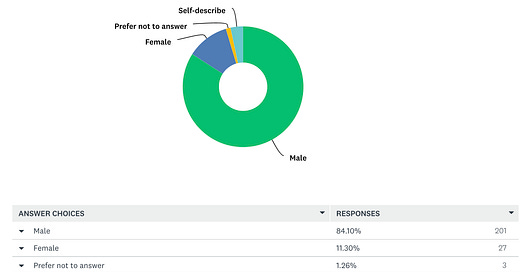



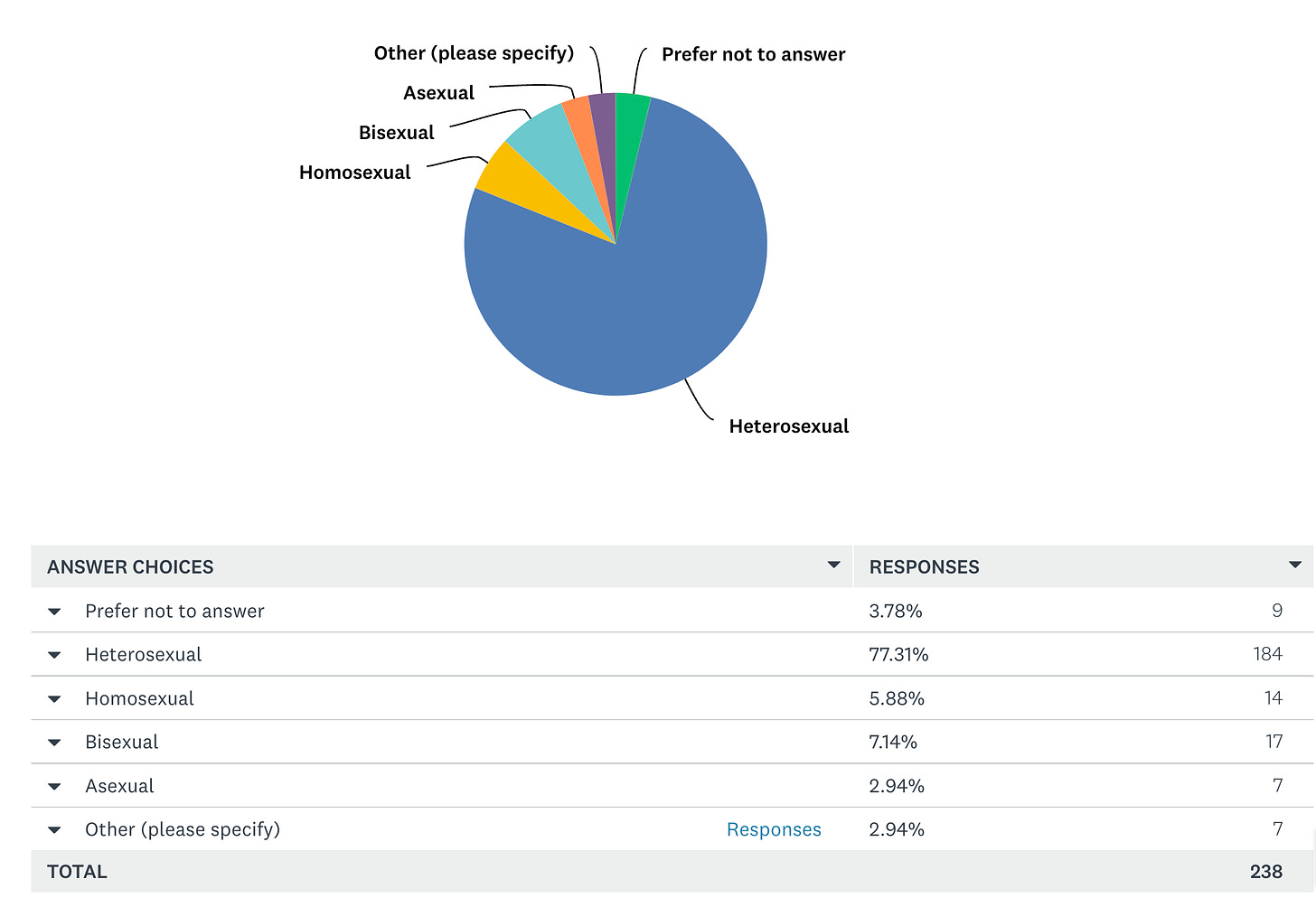
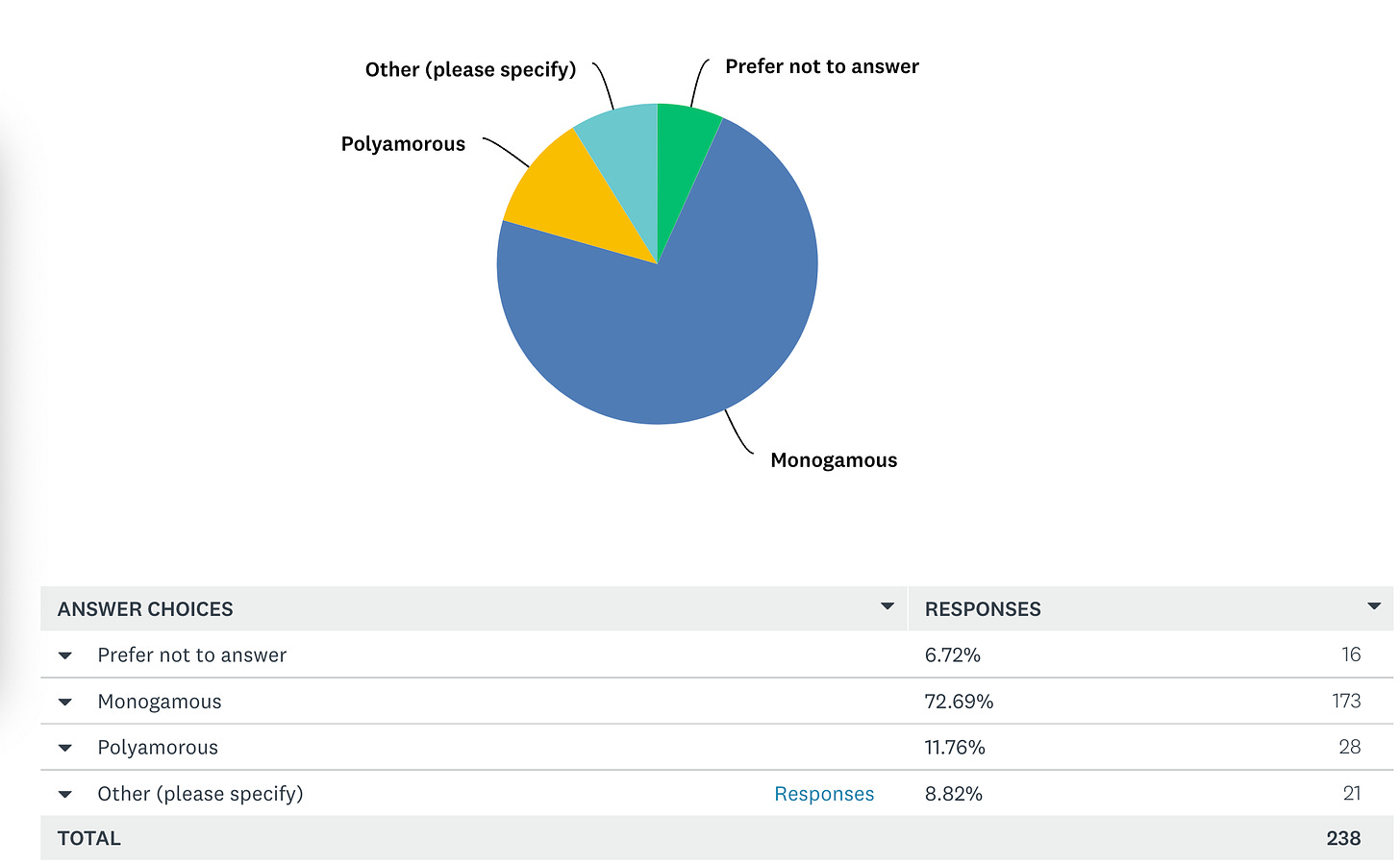
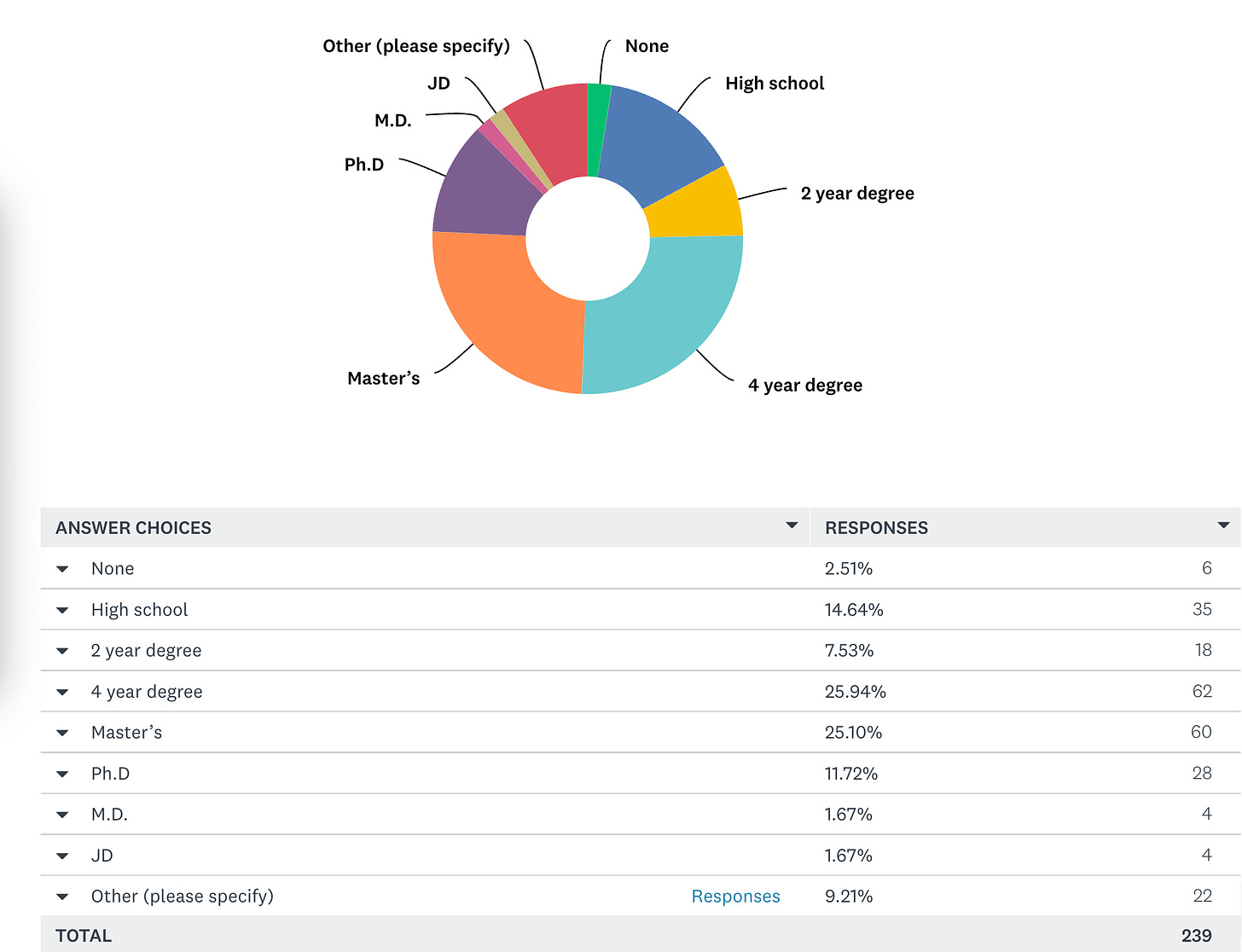
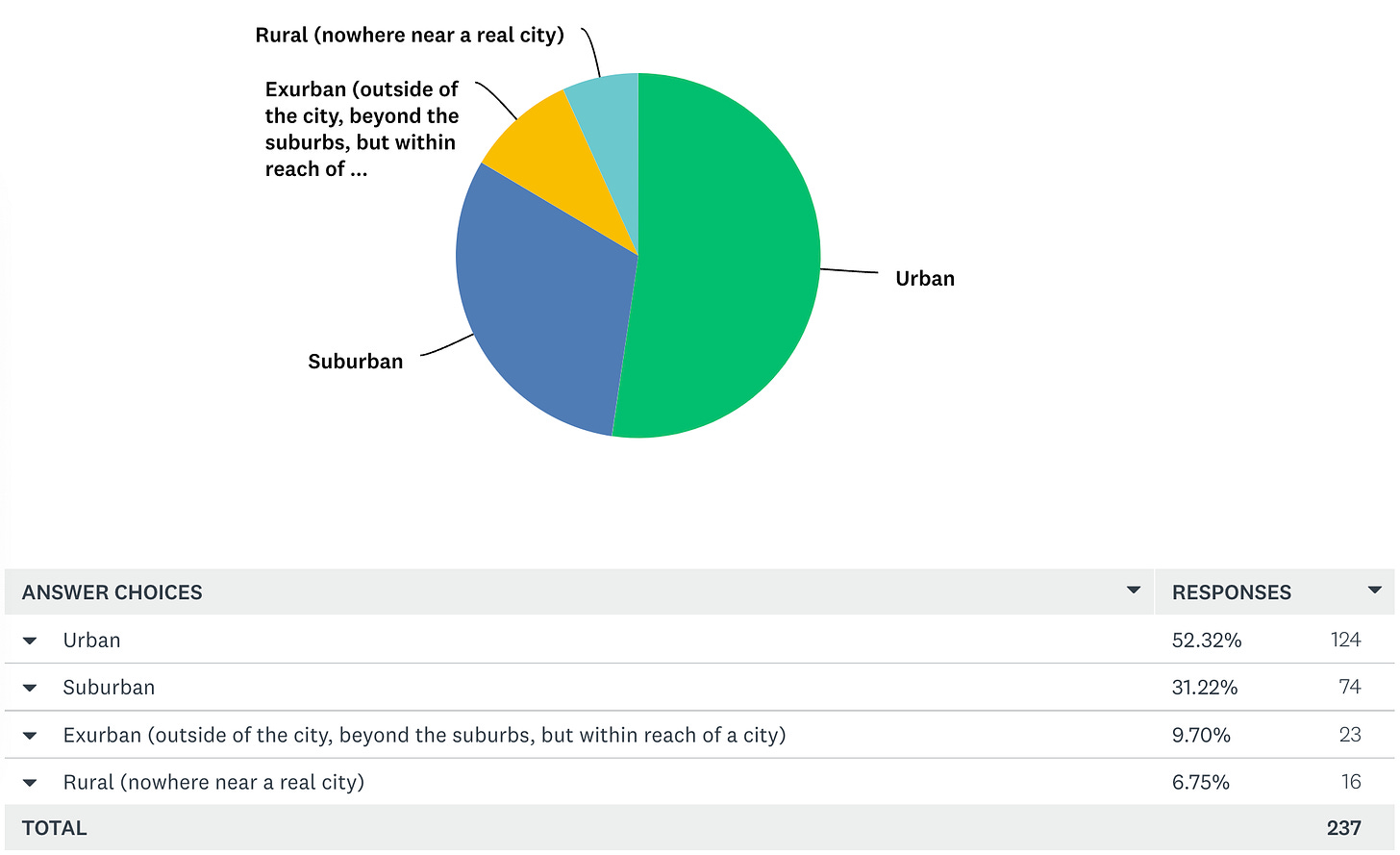
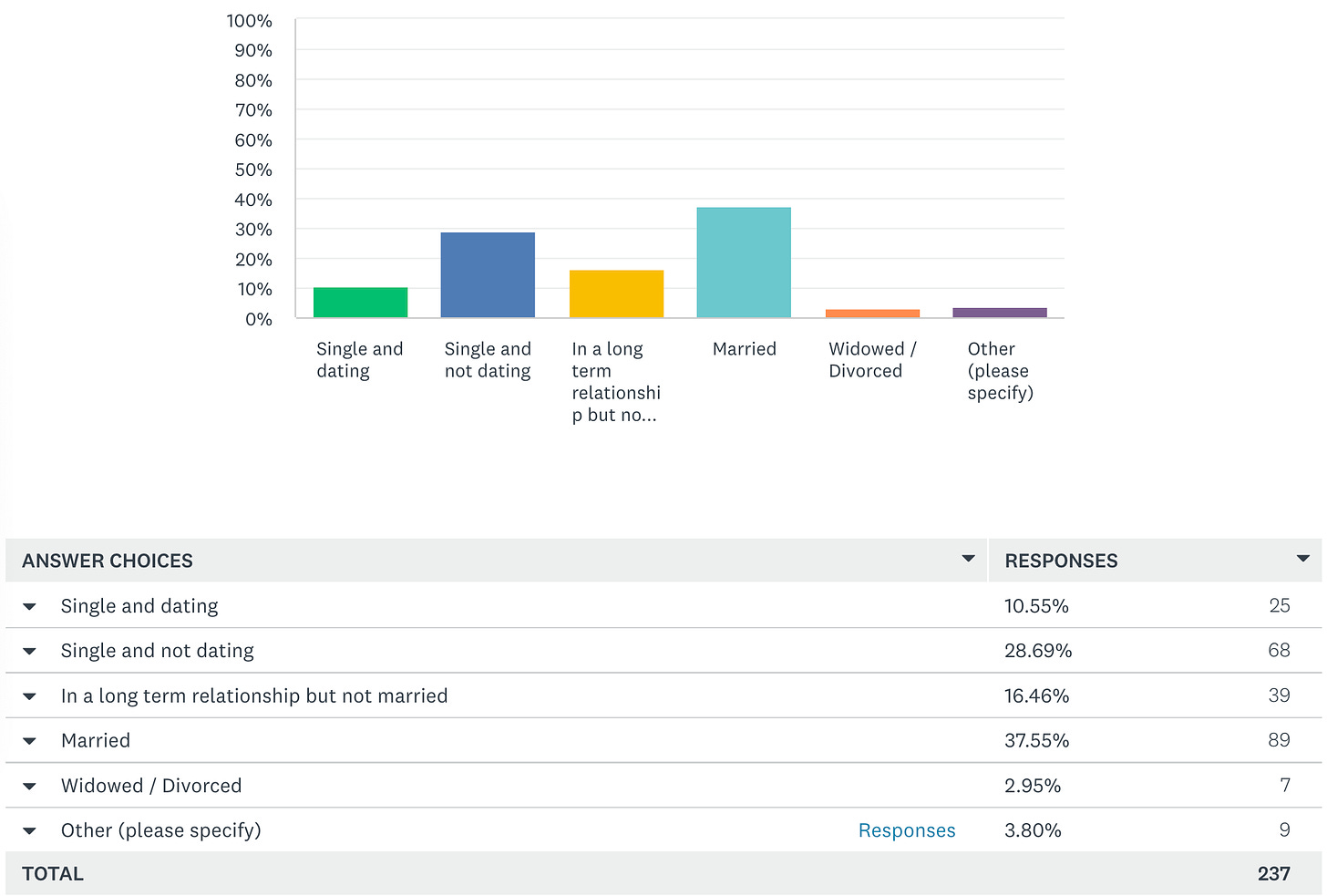
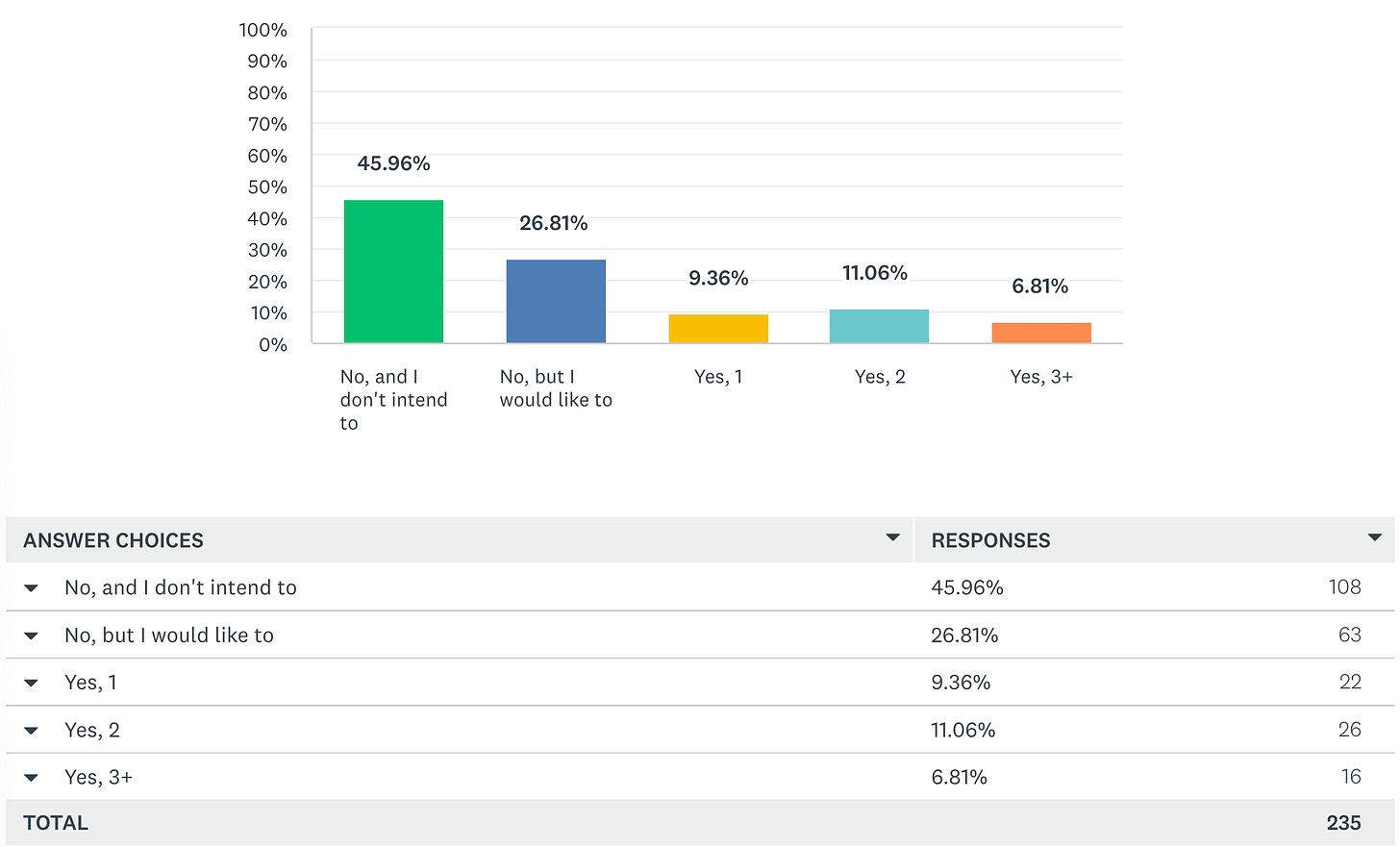
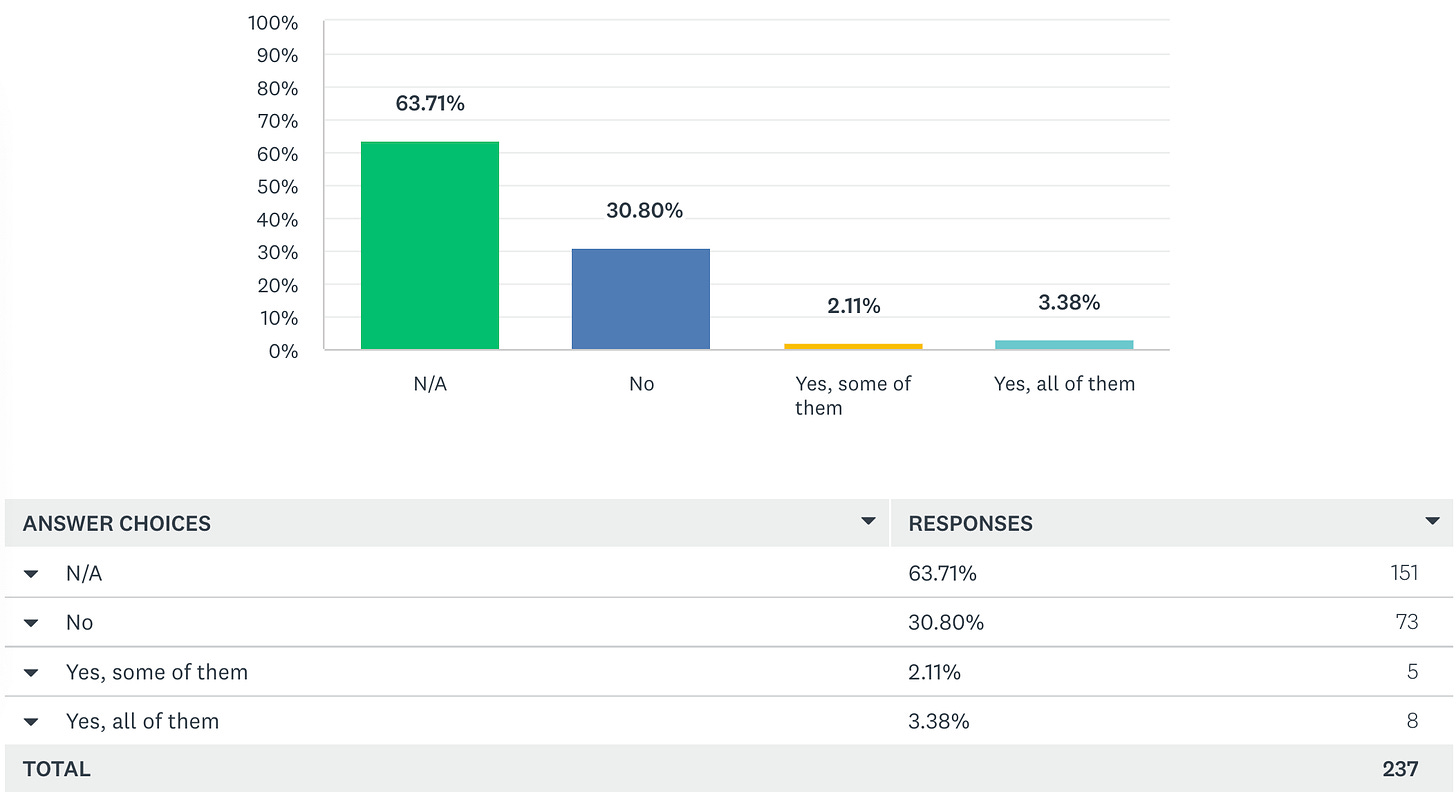
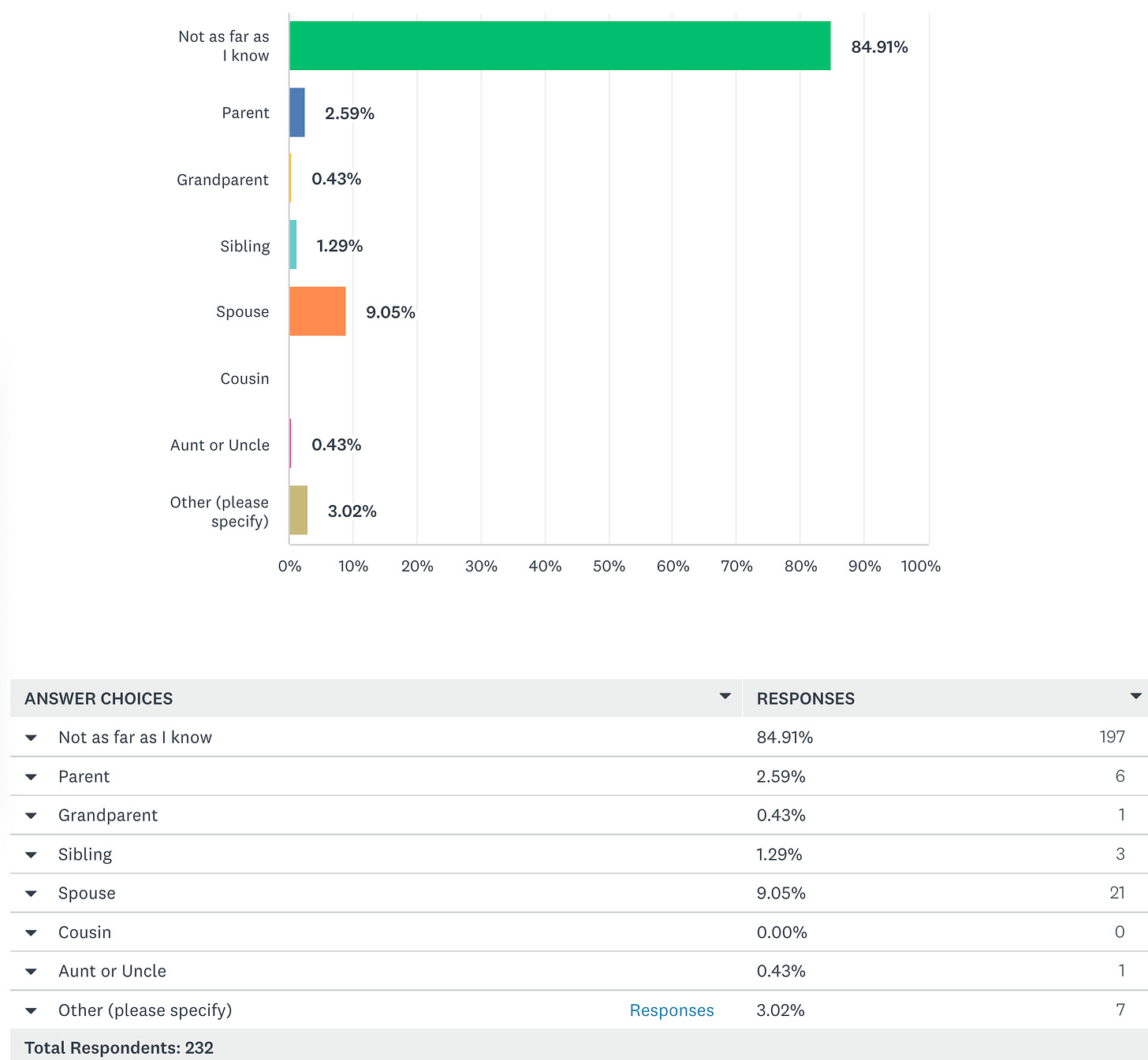
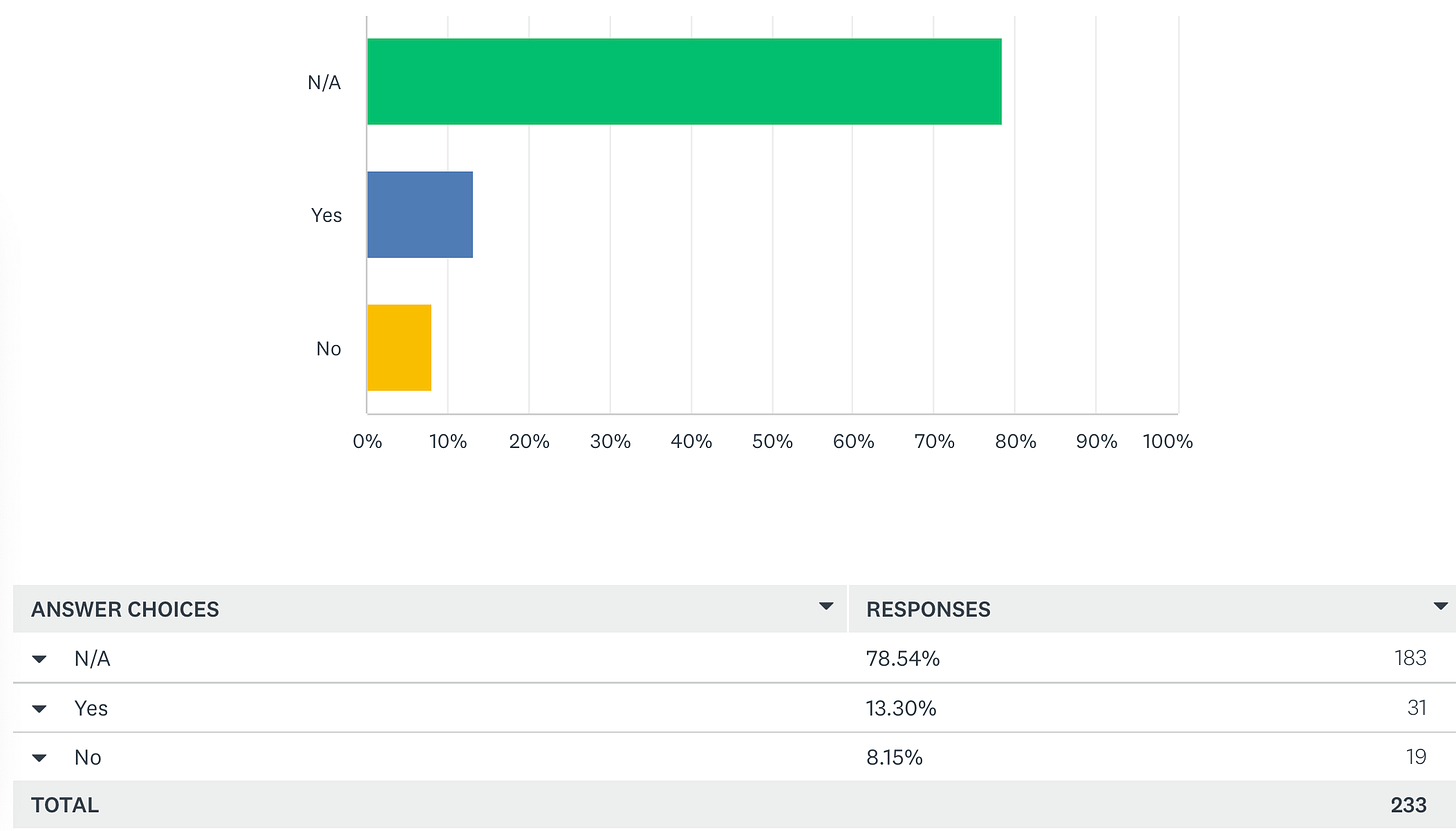
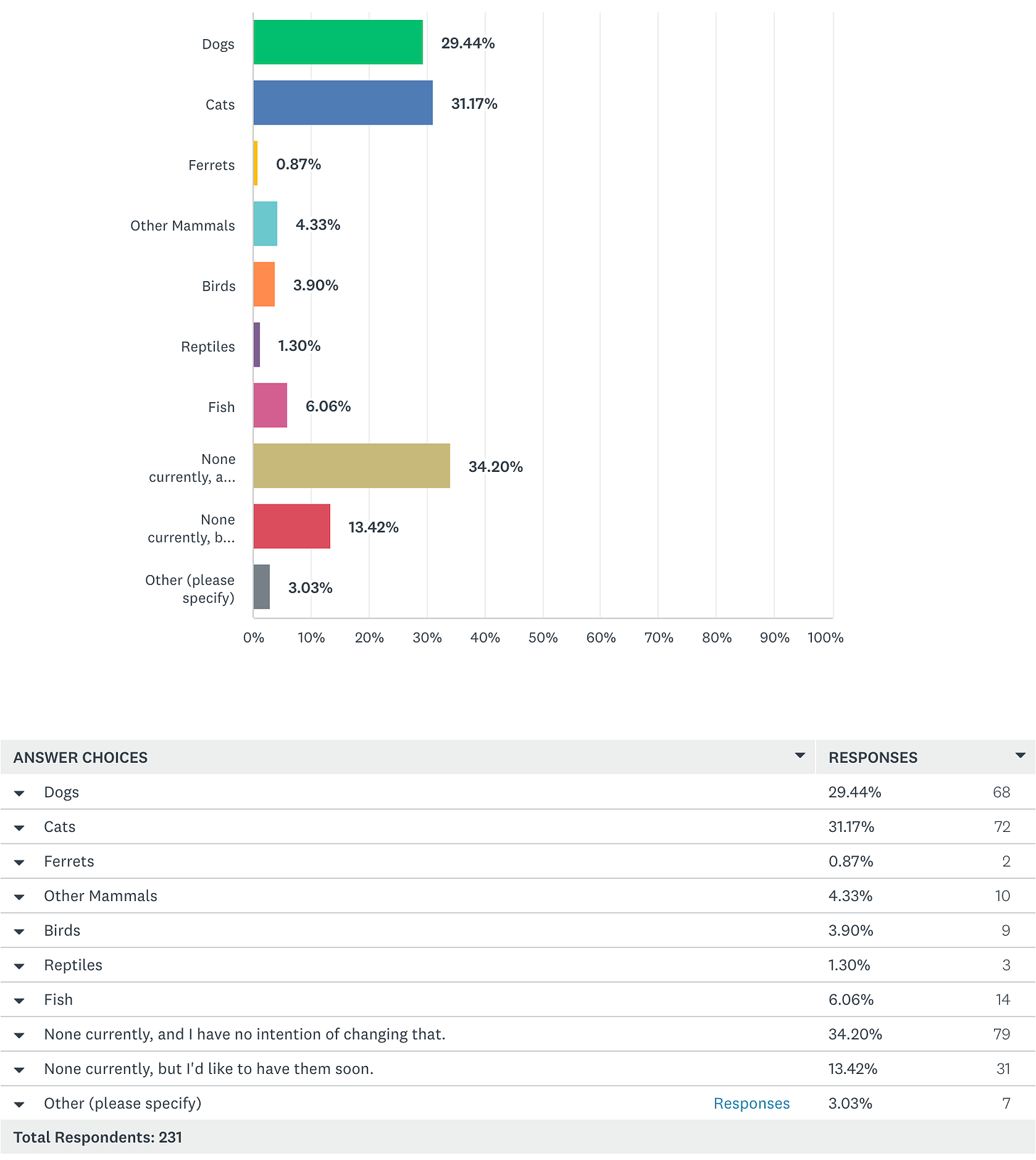
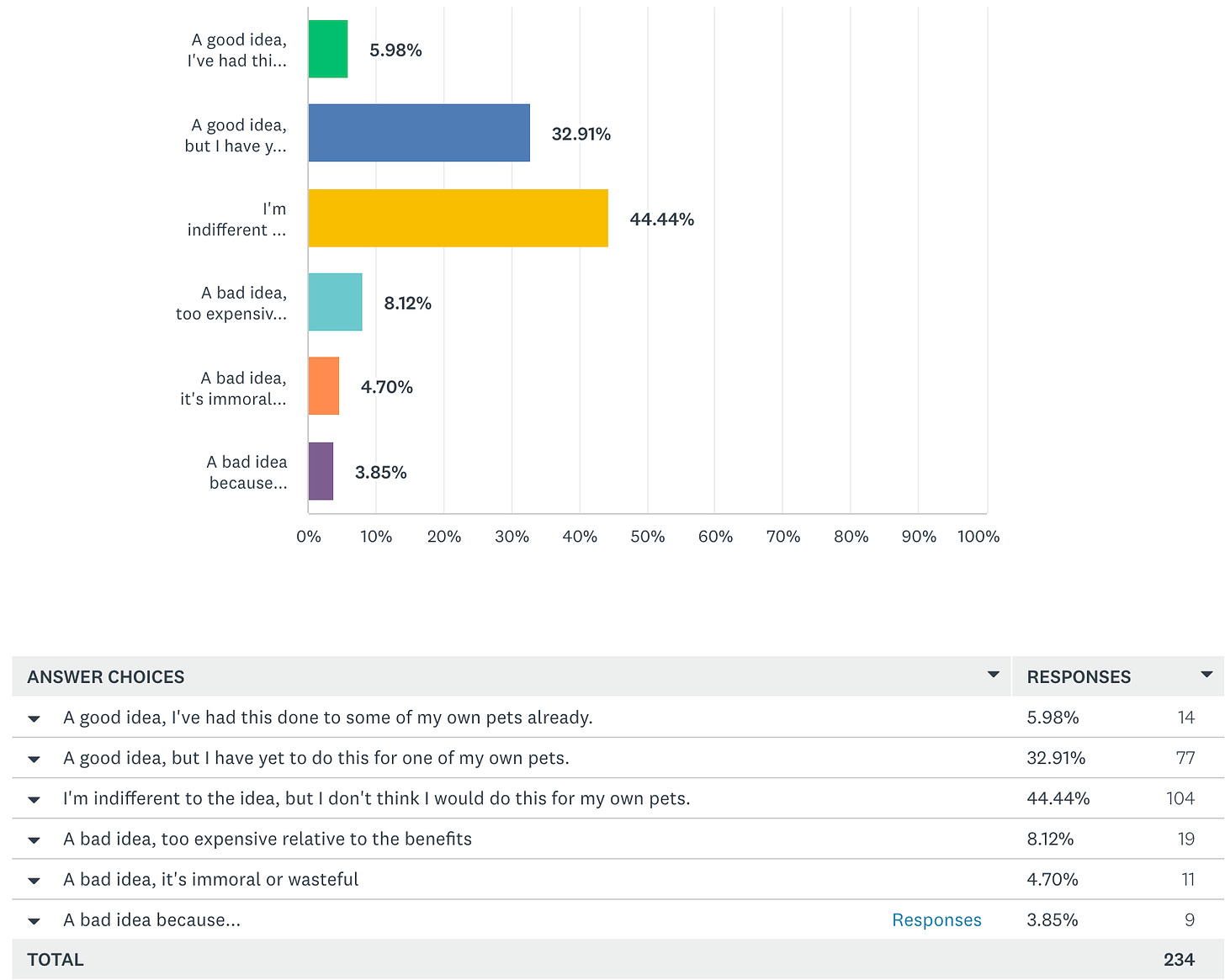
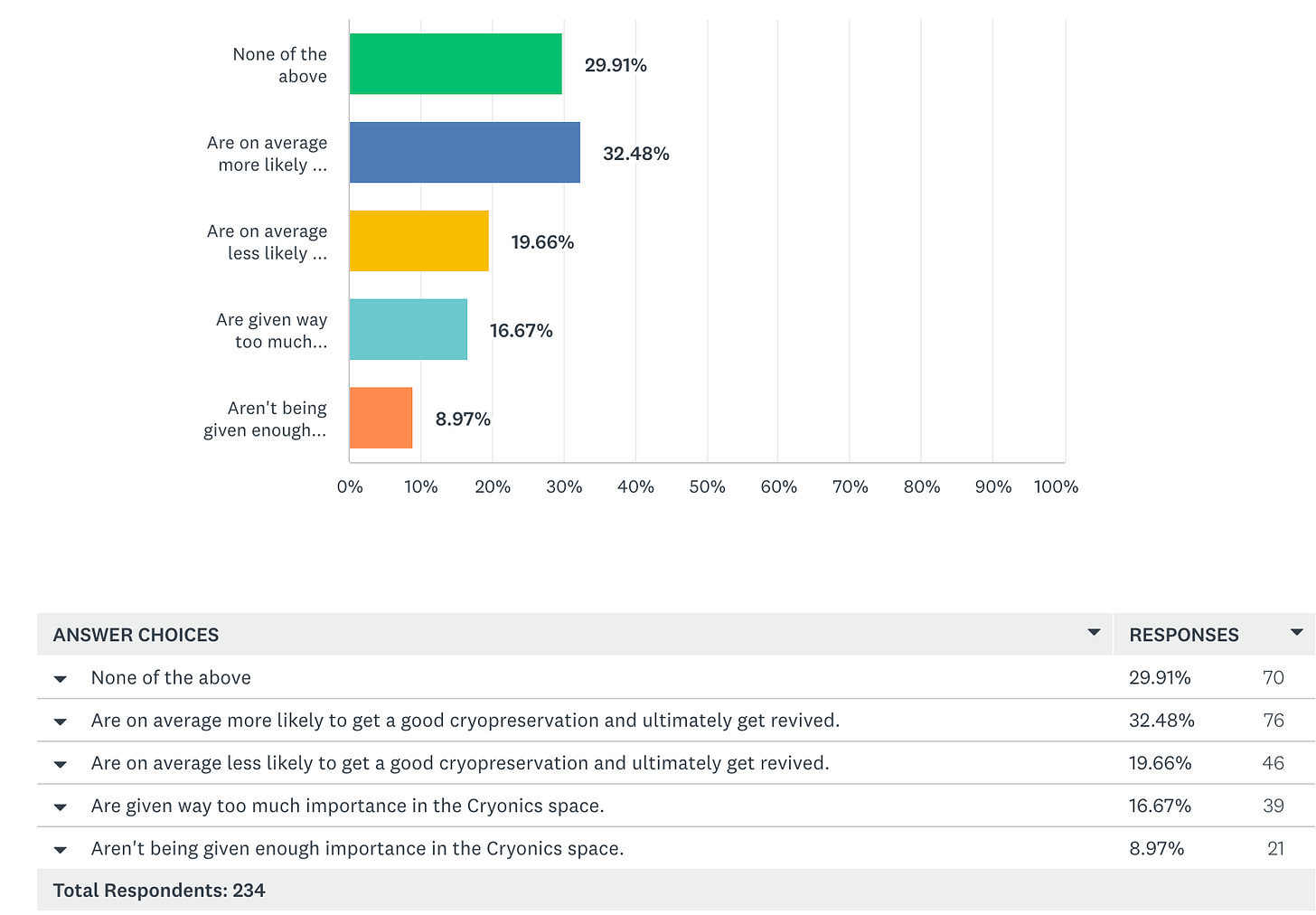
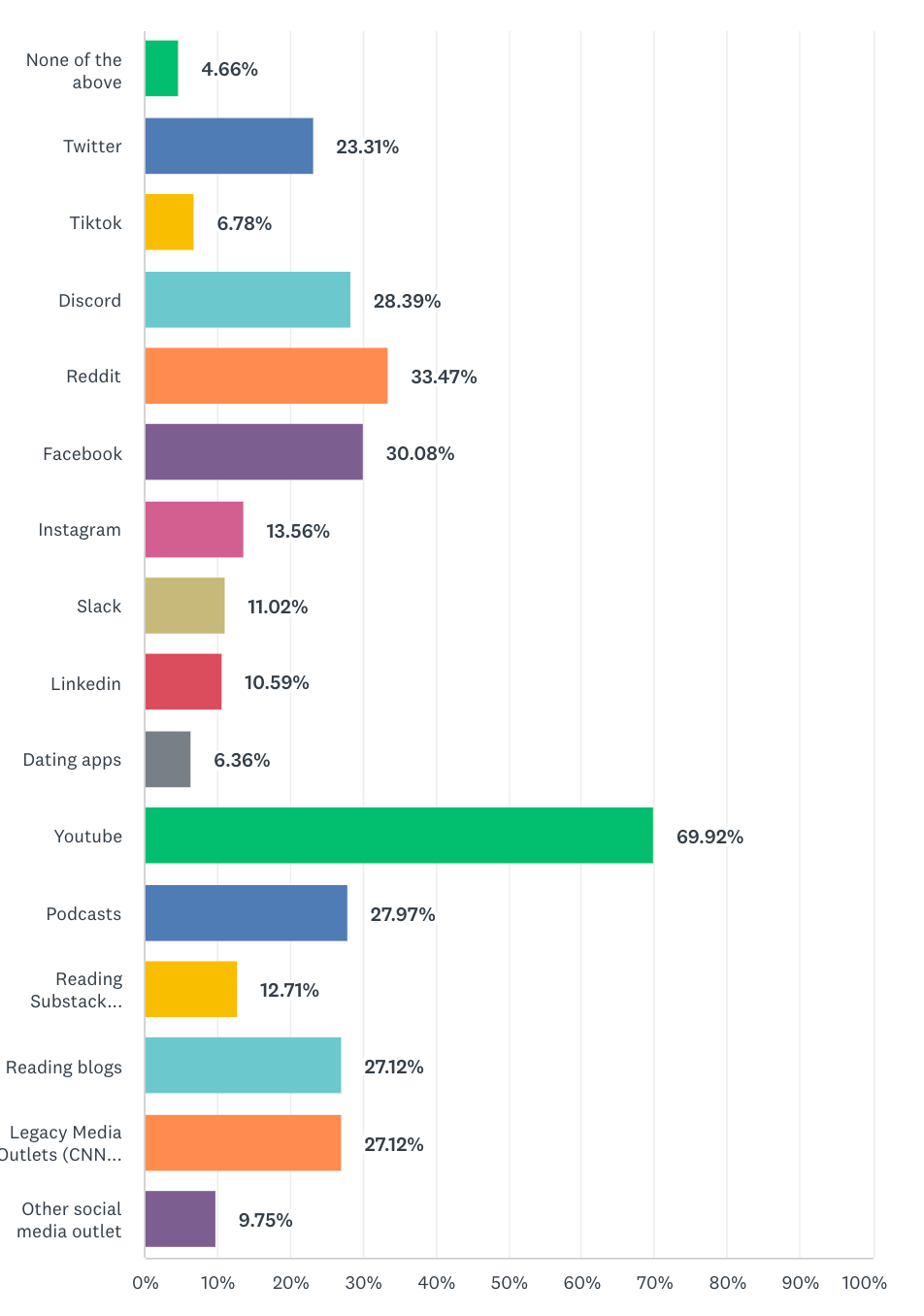
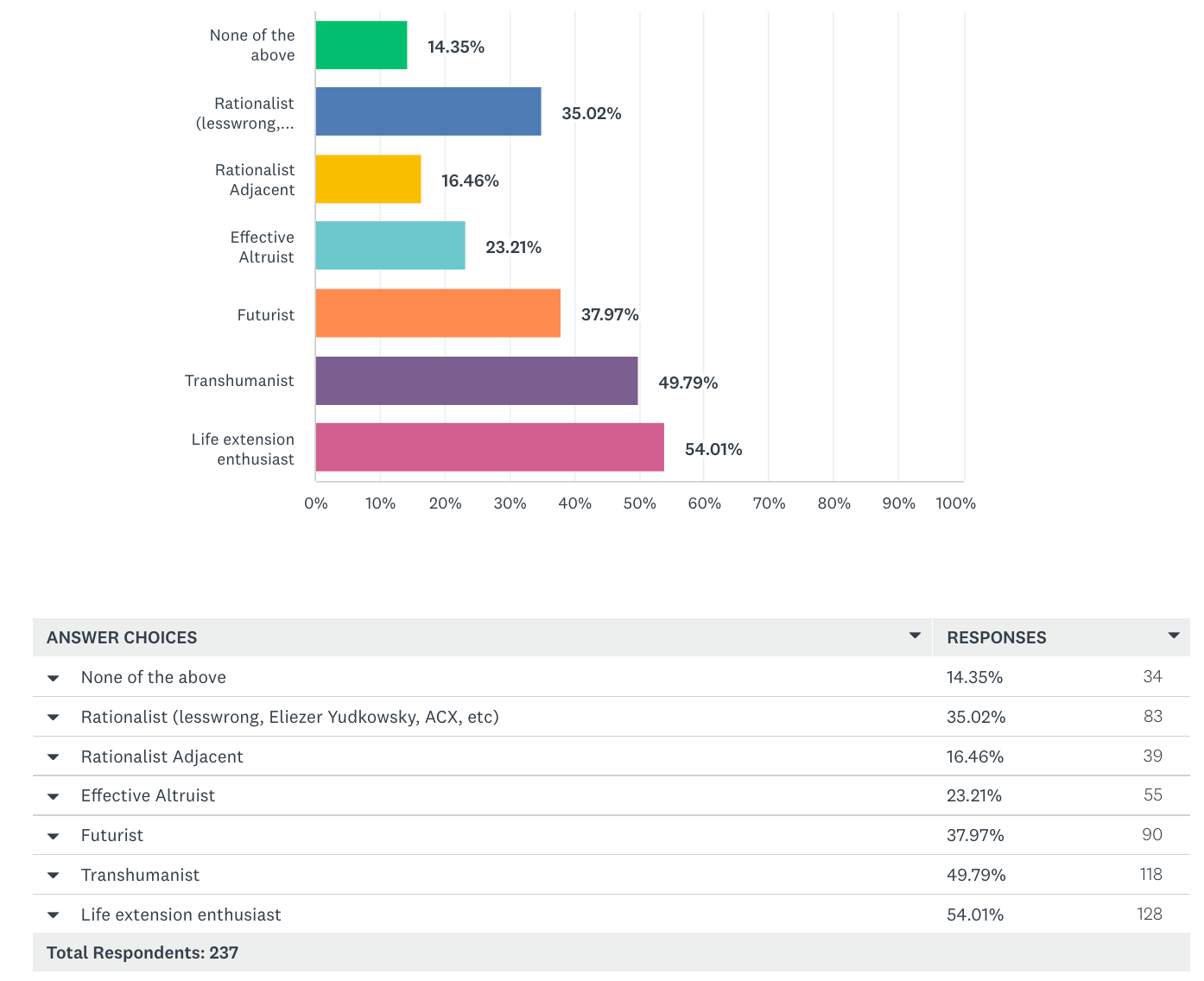
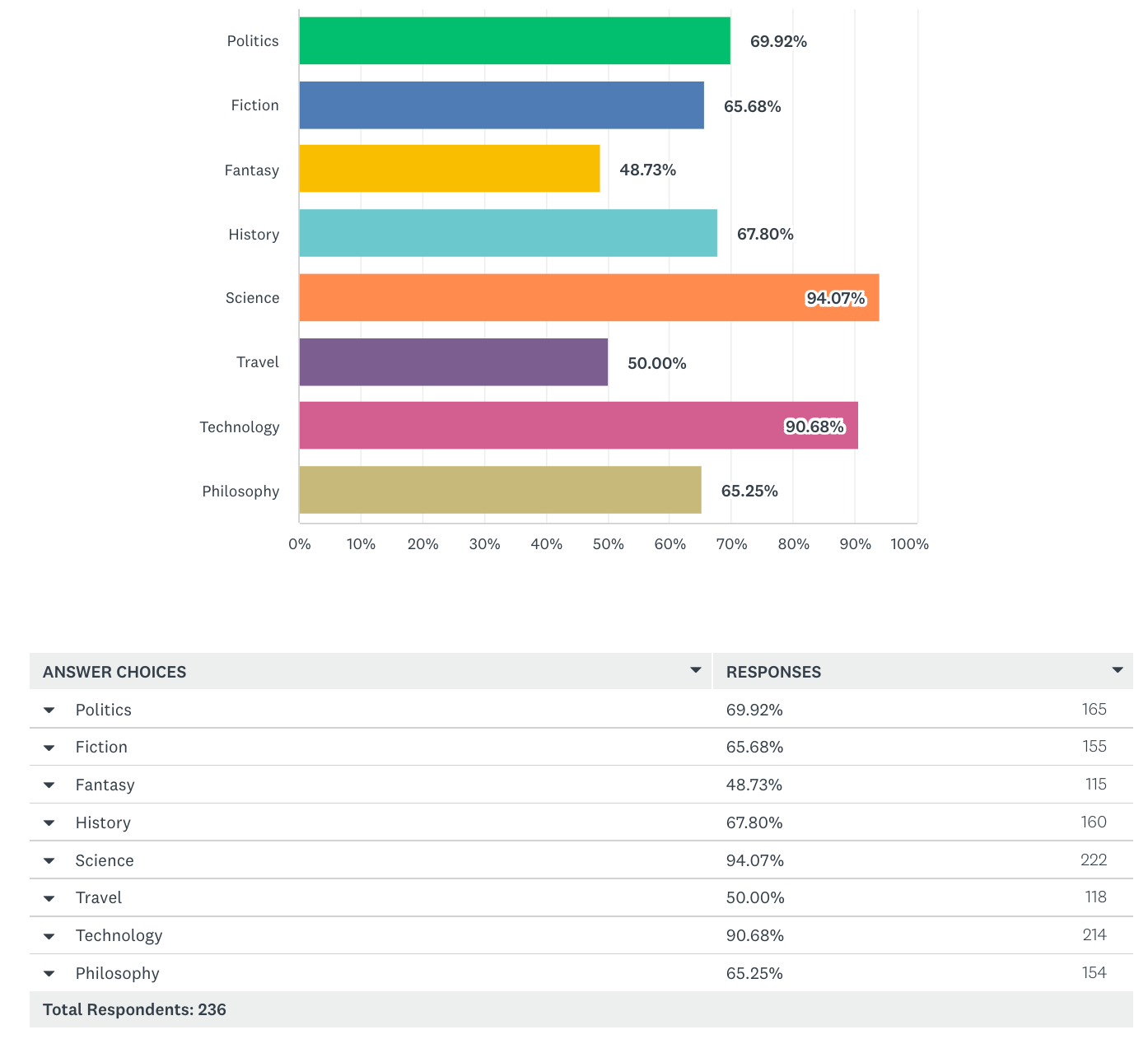
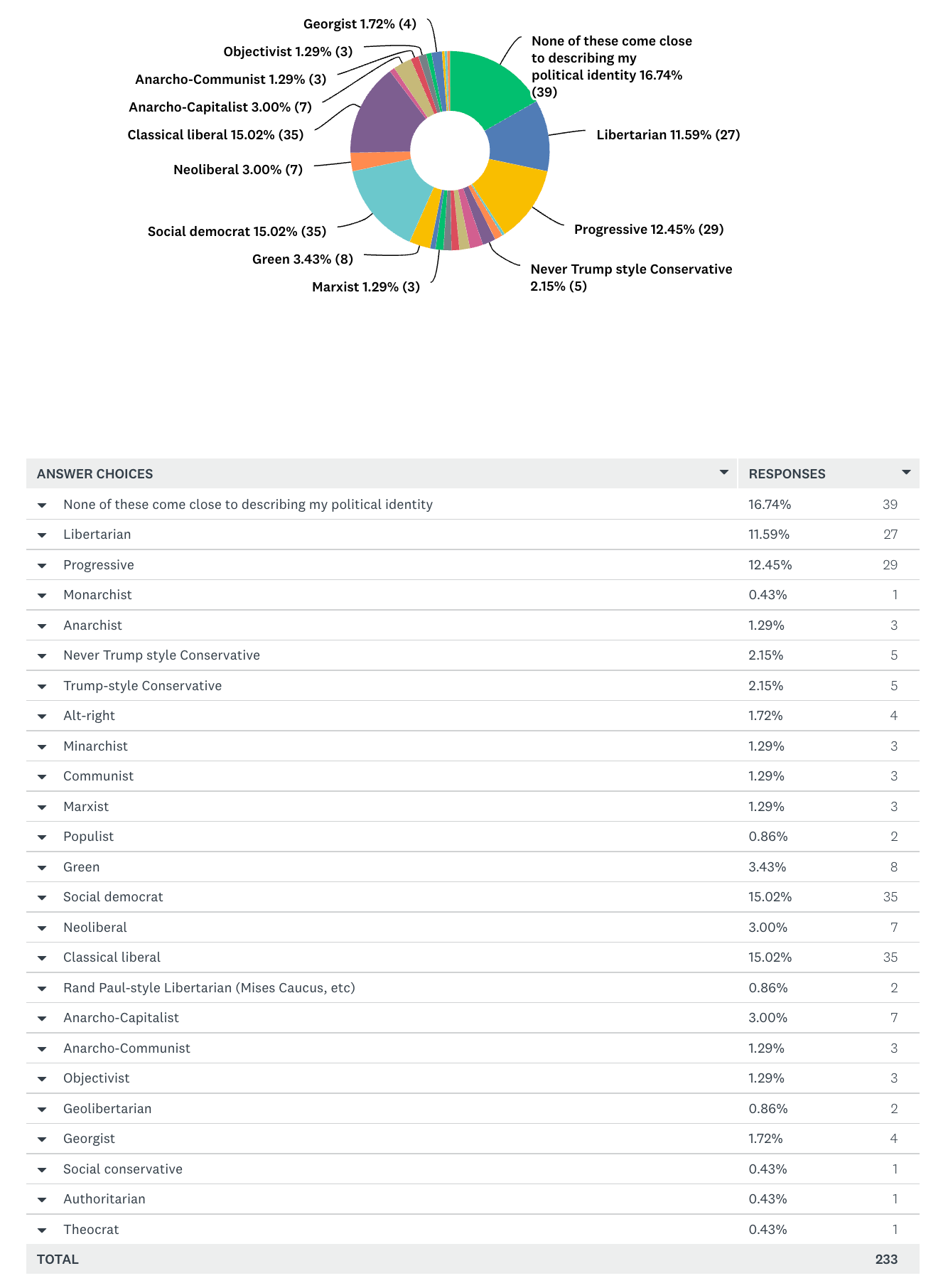
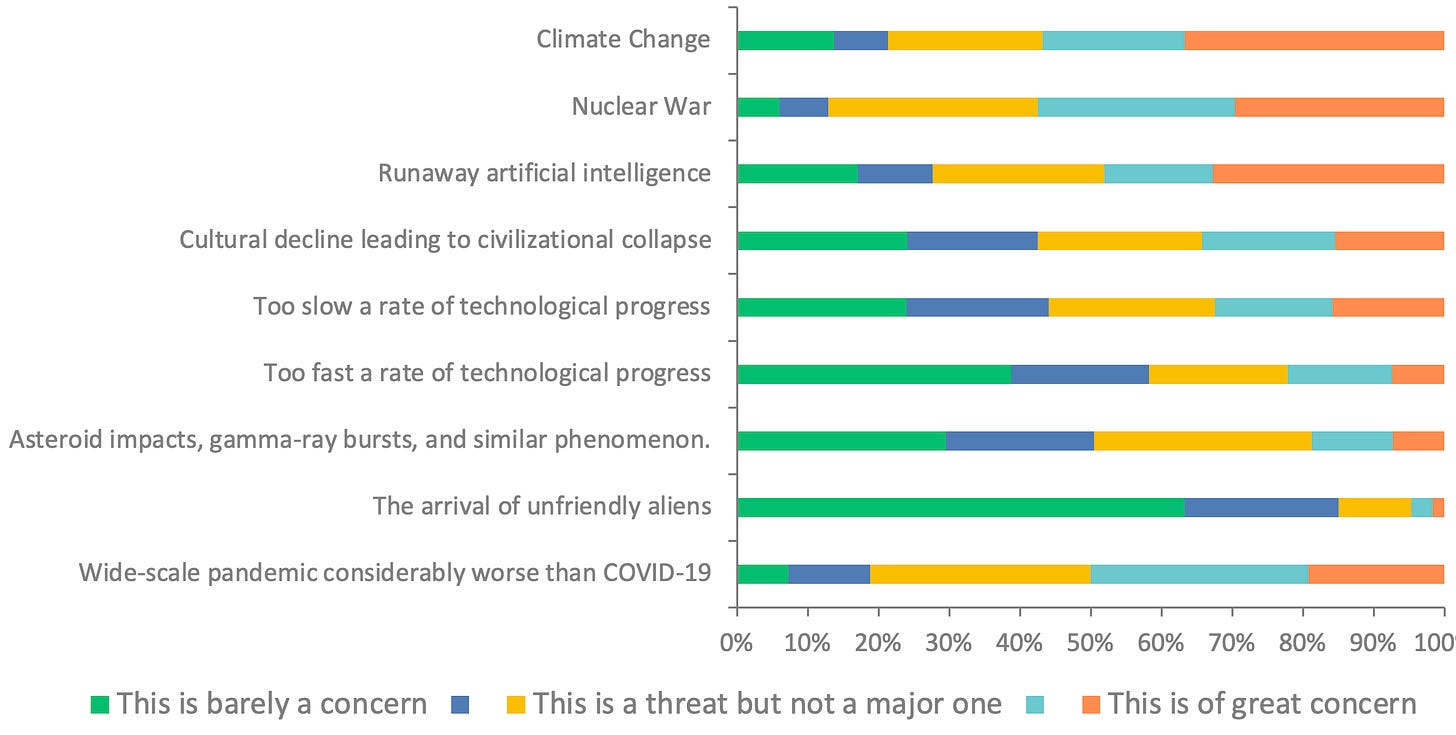
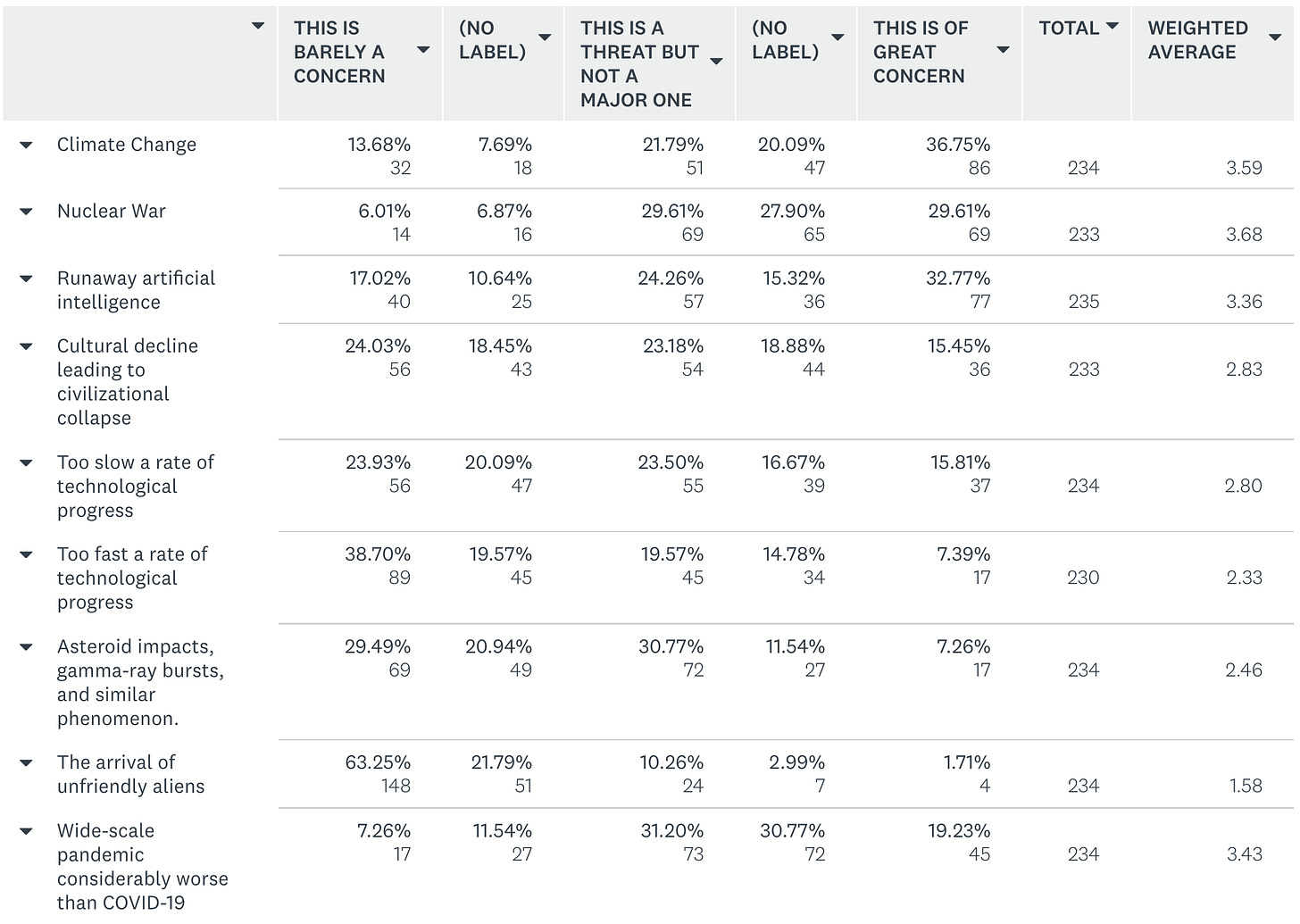
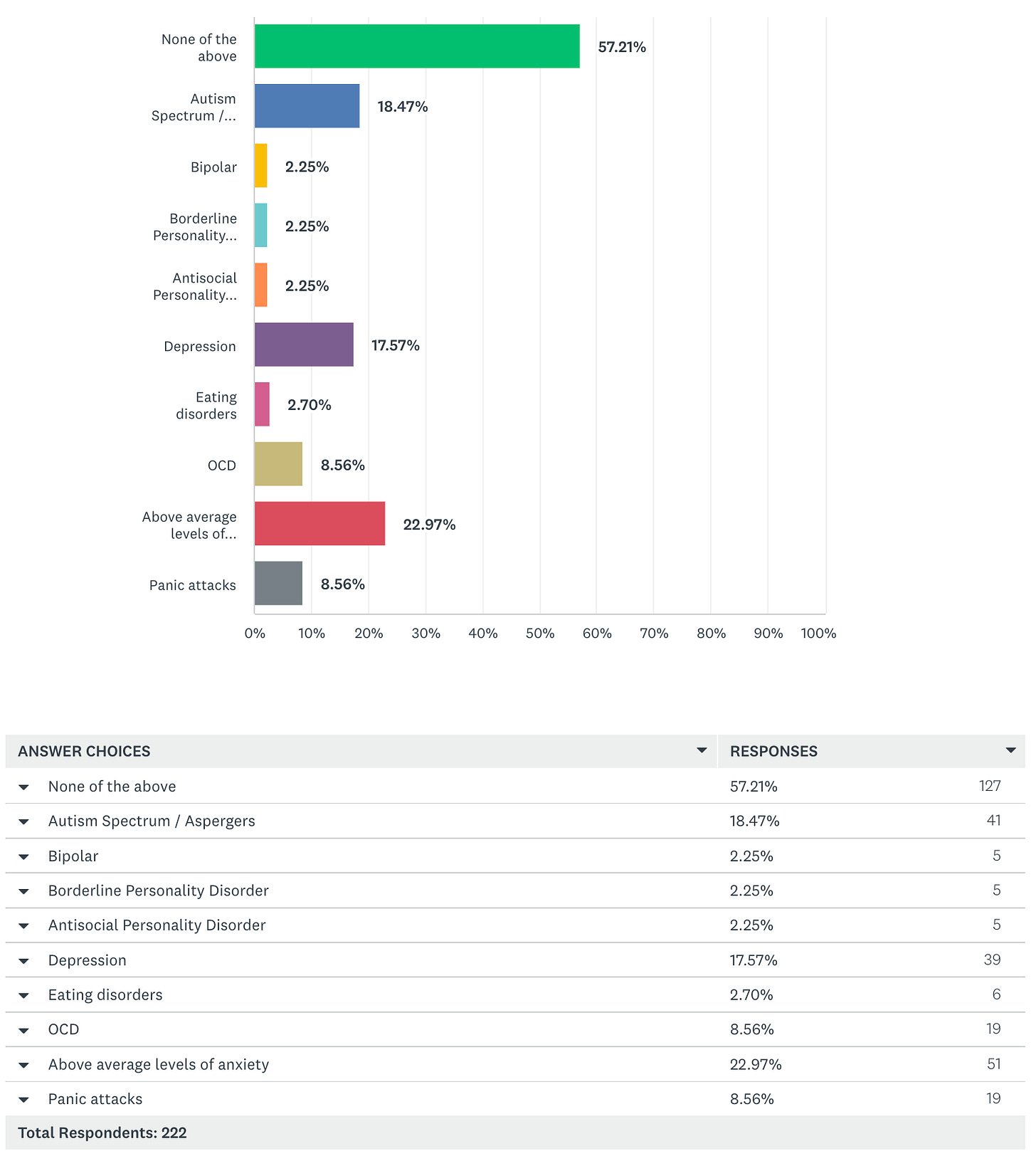
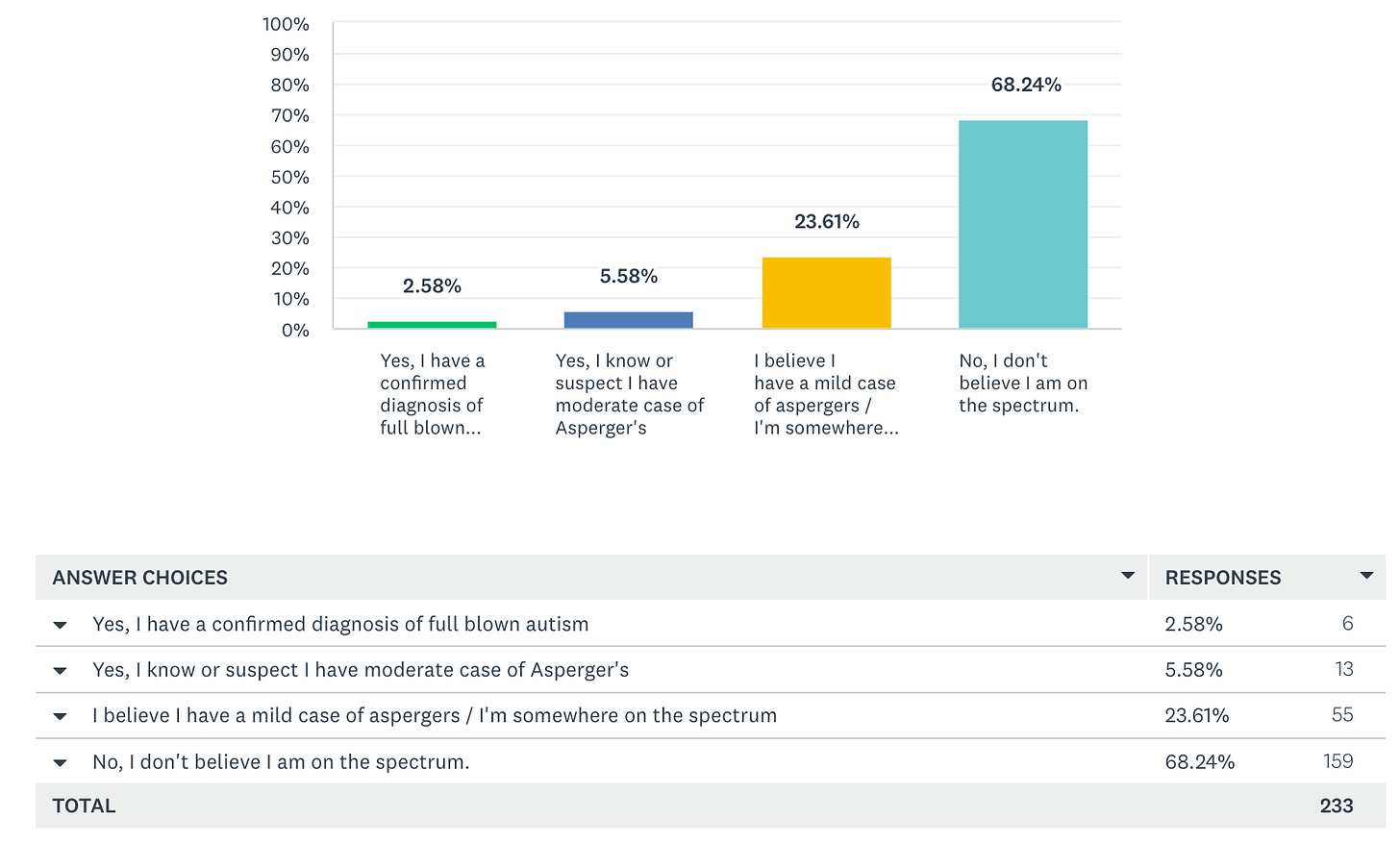
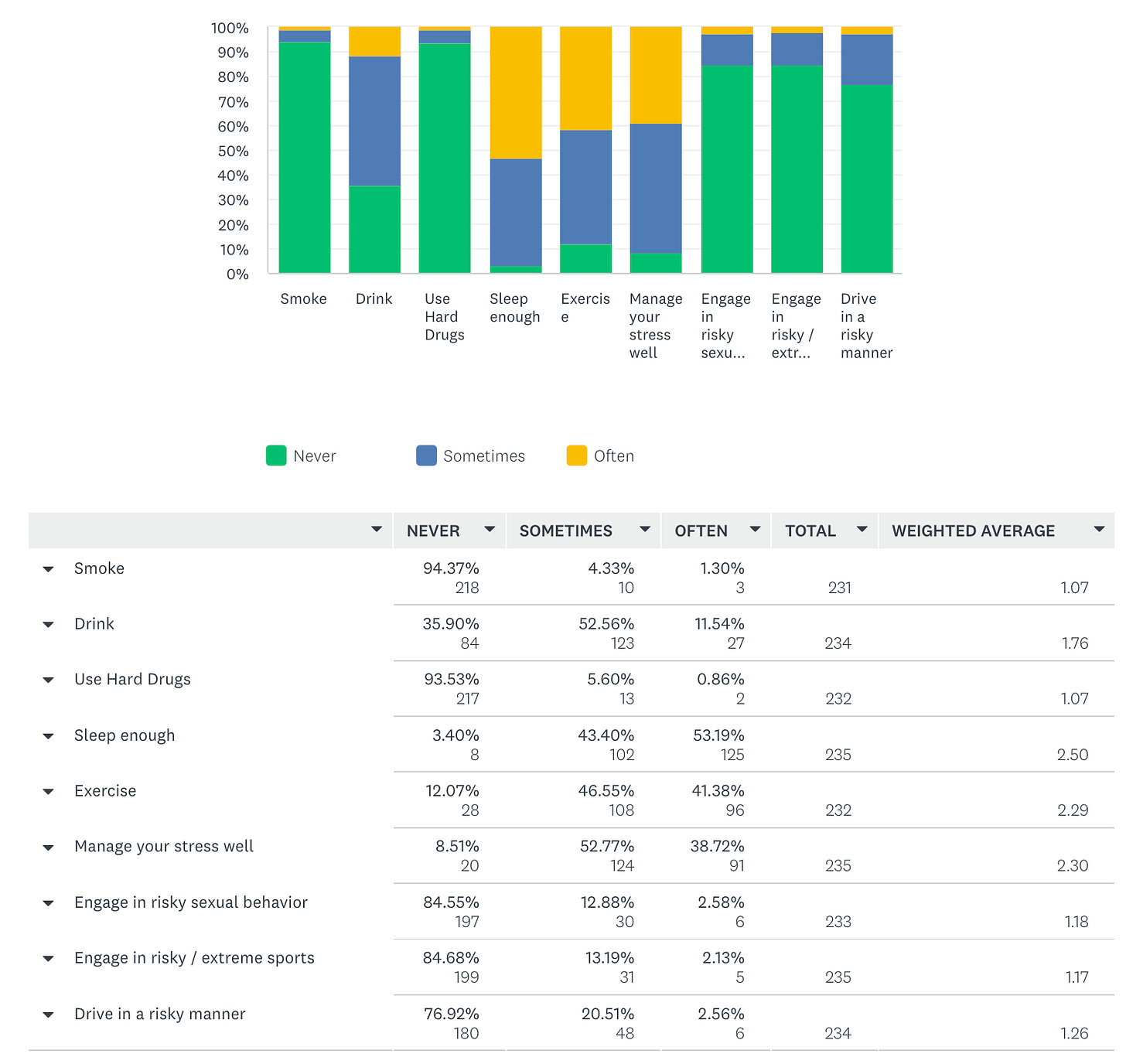
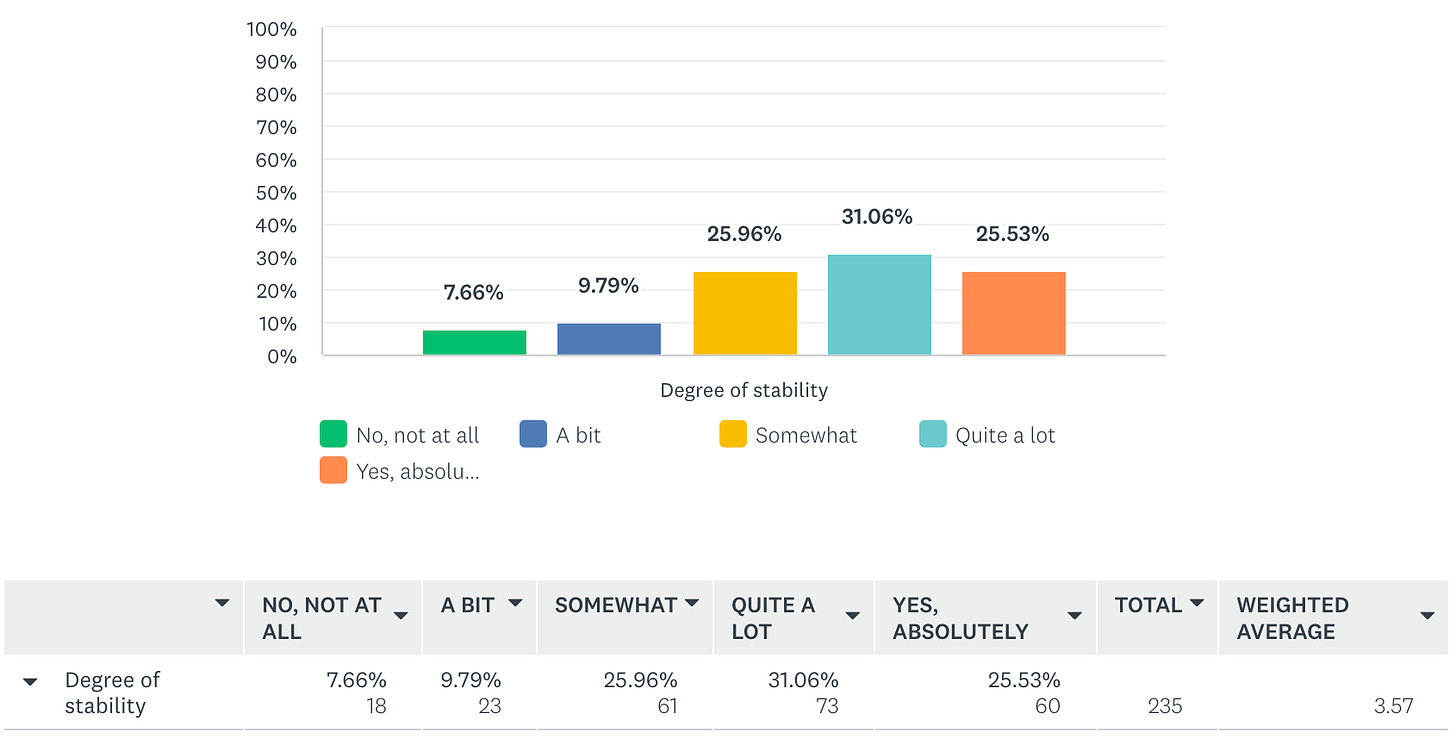
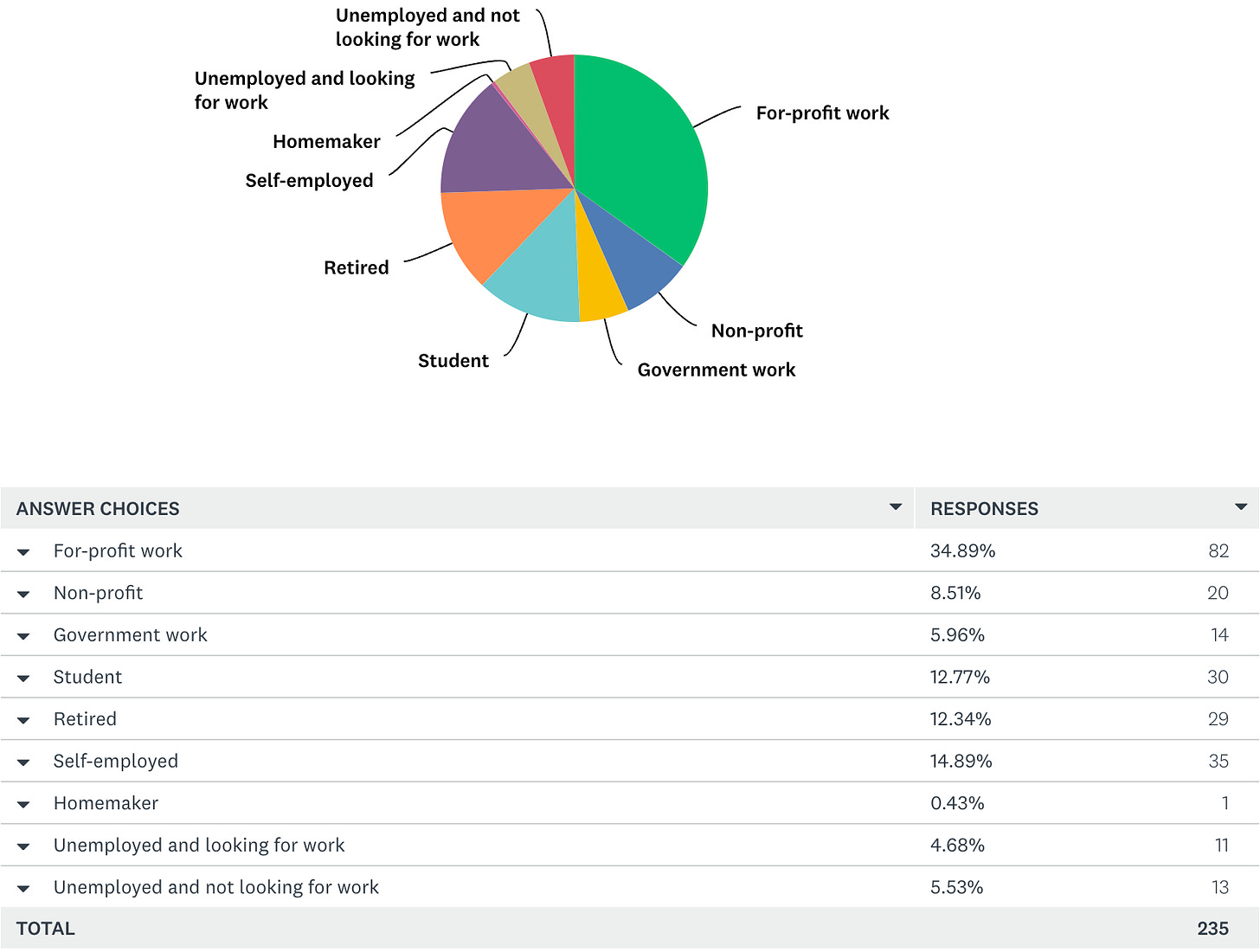
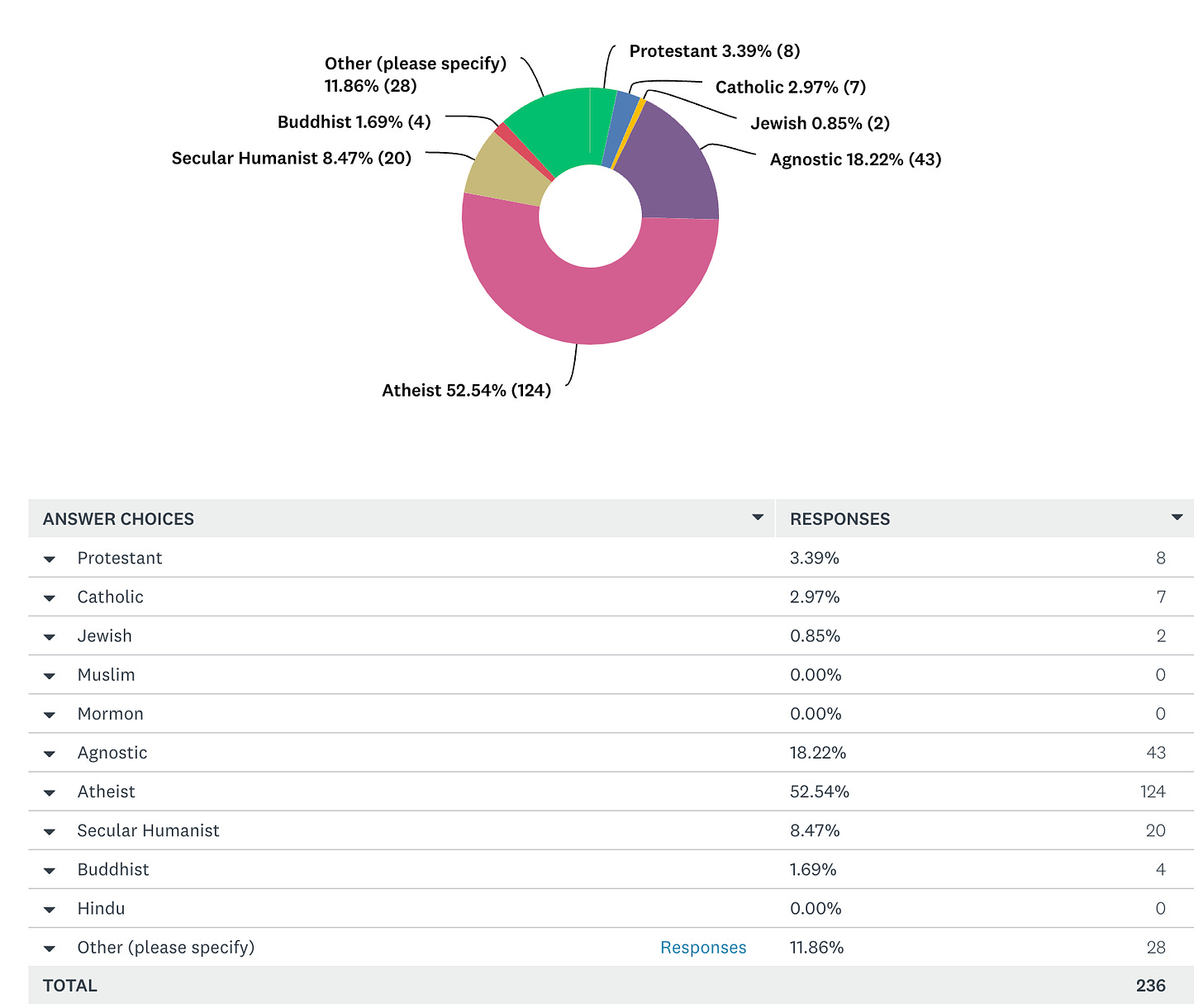
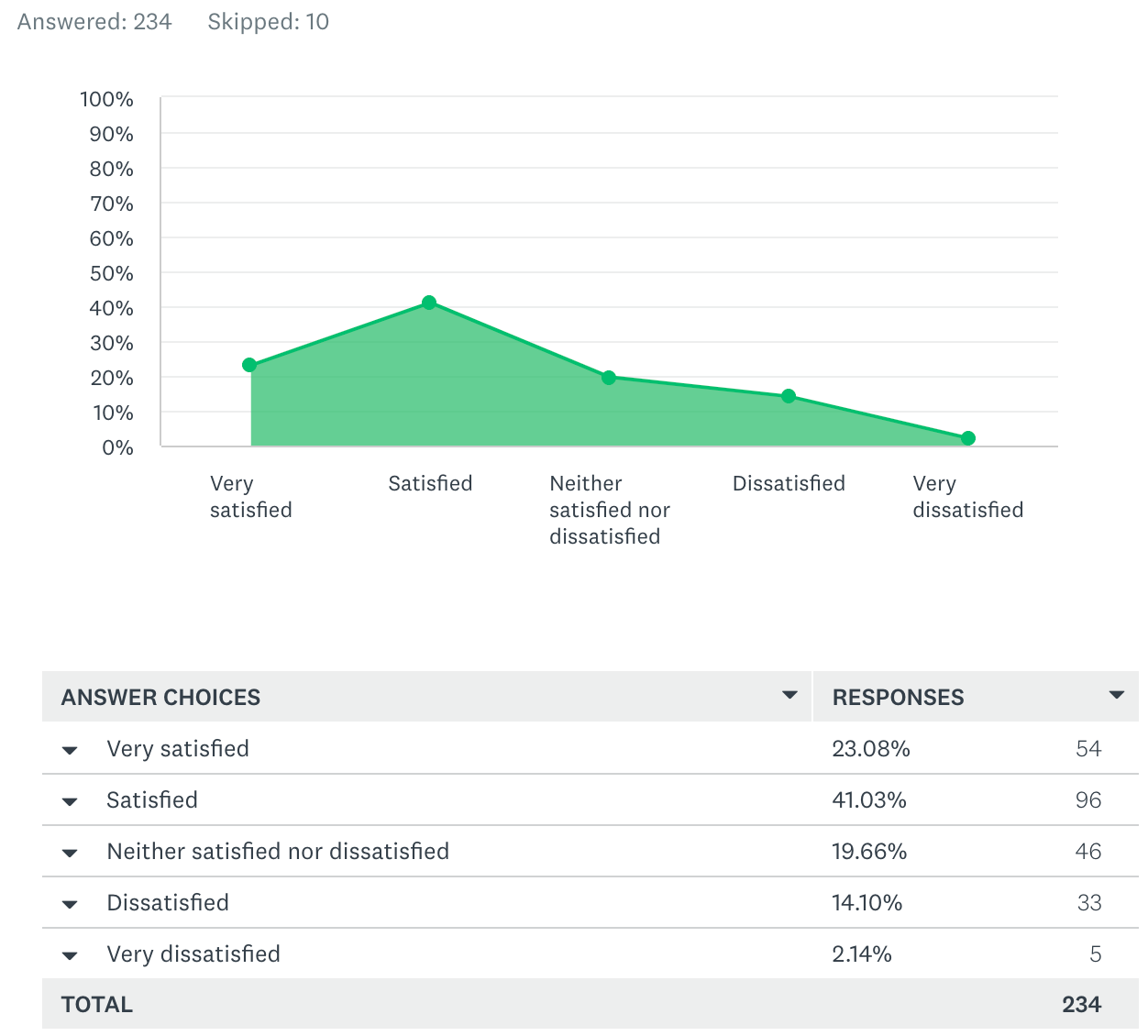
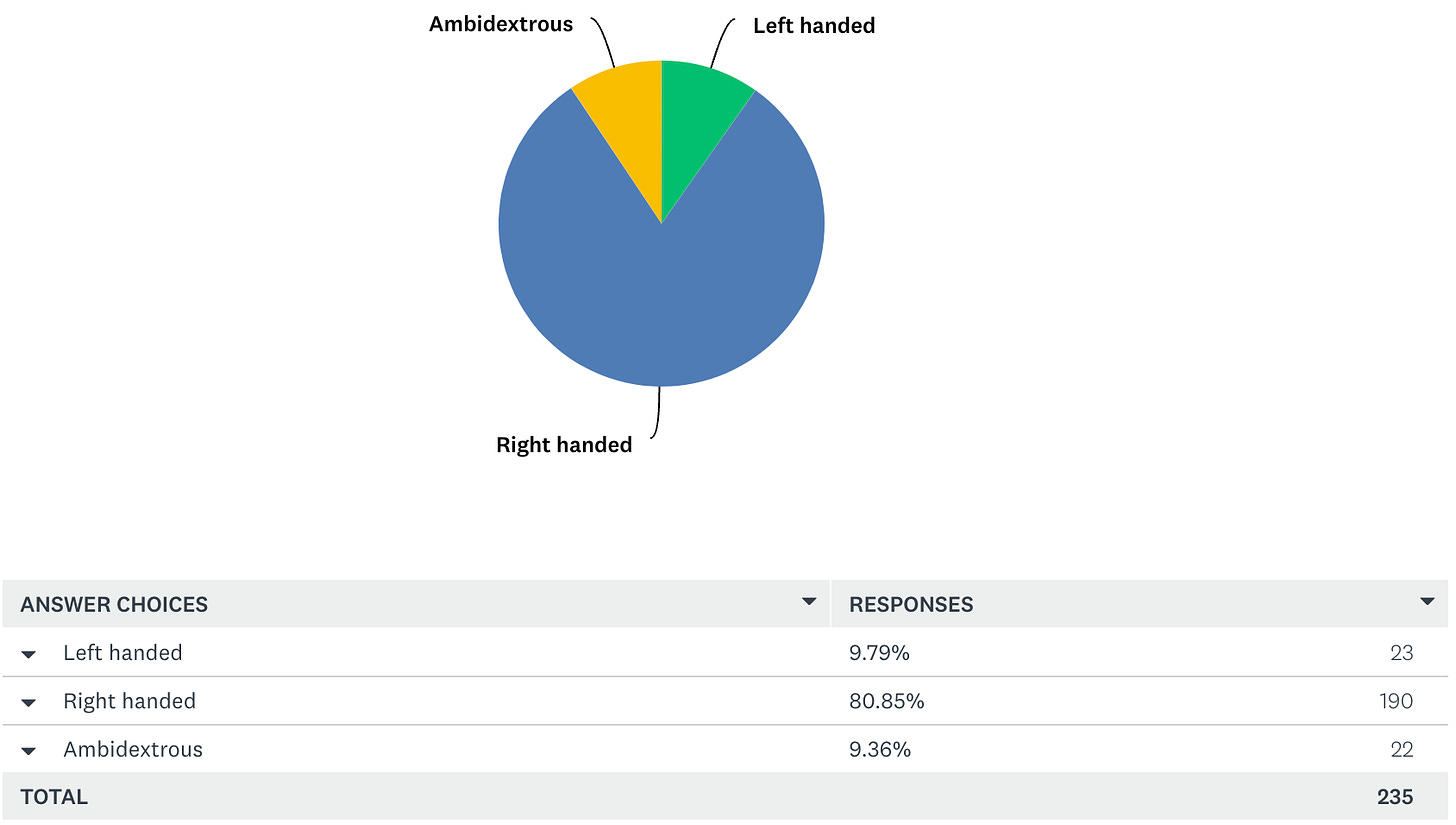
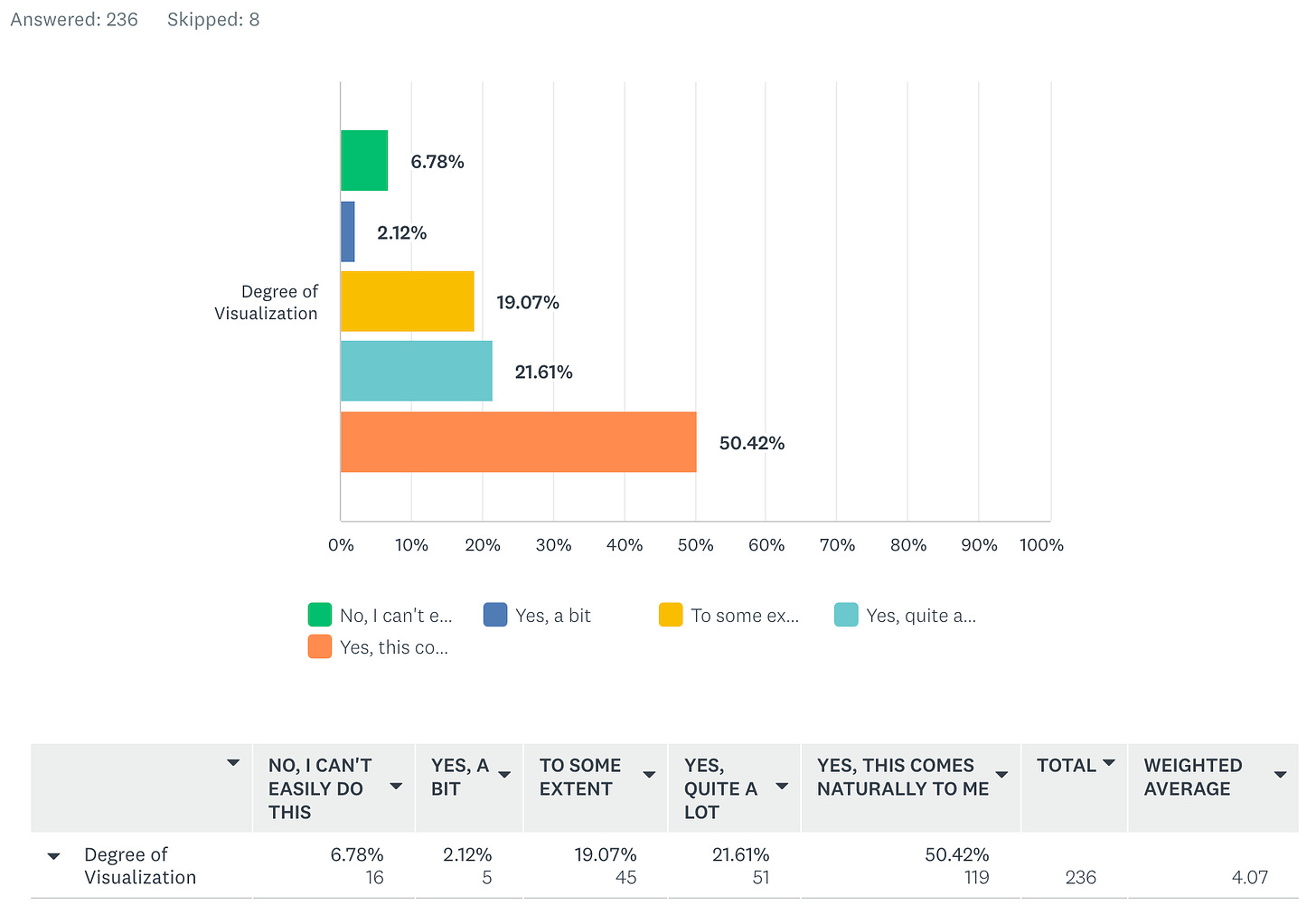
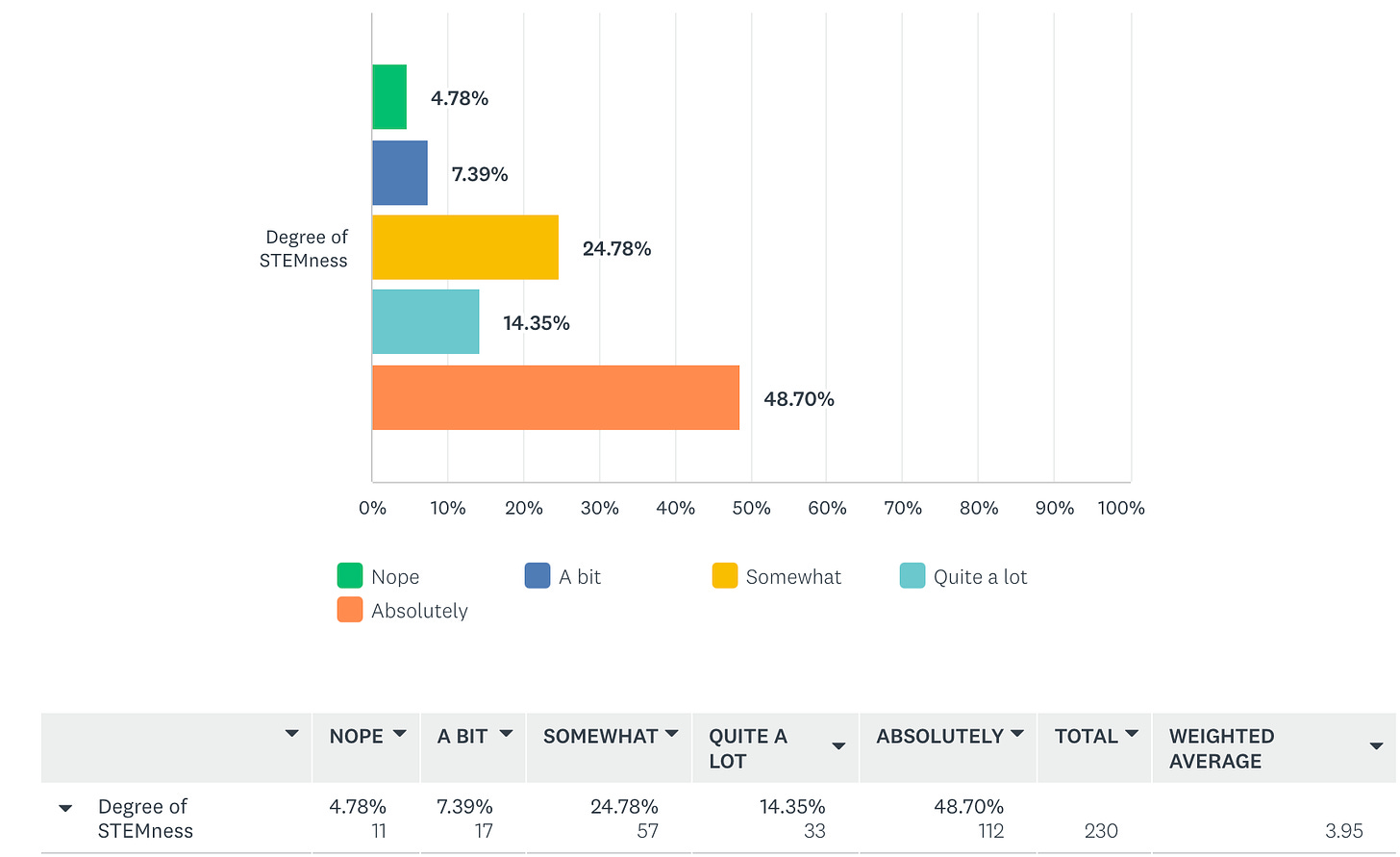
"For people that believe Cryonics is overwhelmingly a libertarian pursuit - this data suggests otherwise." True but it's also true that the percentage of cryonicists who are libertarian is FAR higher than in the general population.
Based on the results so far, perhaps we should focus on autistic atheists working in STEM. :-)
Thank you for all the work in doing this. It would be great if someone would put online the two (more?) previous surveys from times past. The late 1980s survey that I co-created is available in Cryonics magazine but could be put in more accessible format.